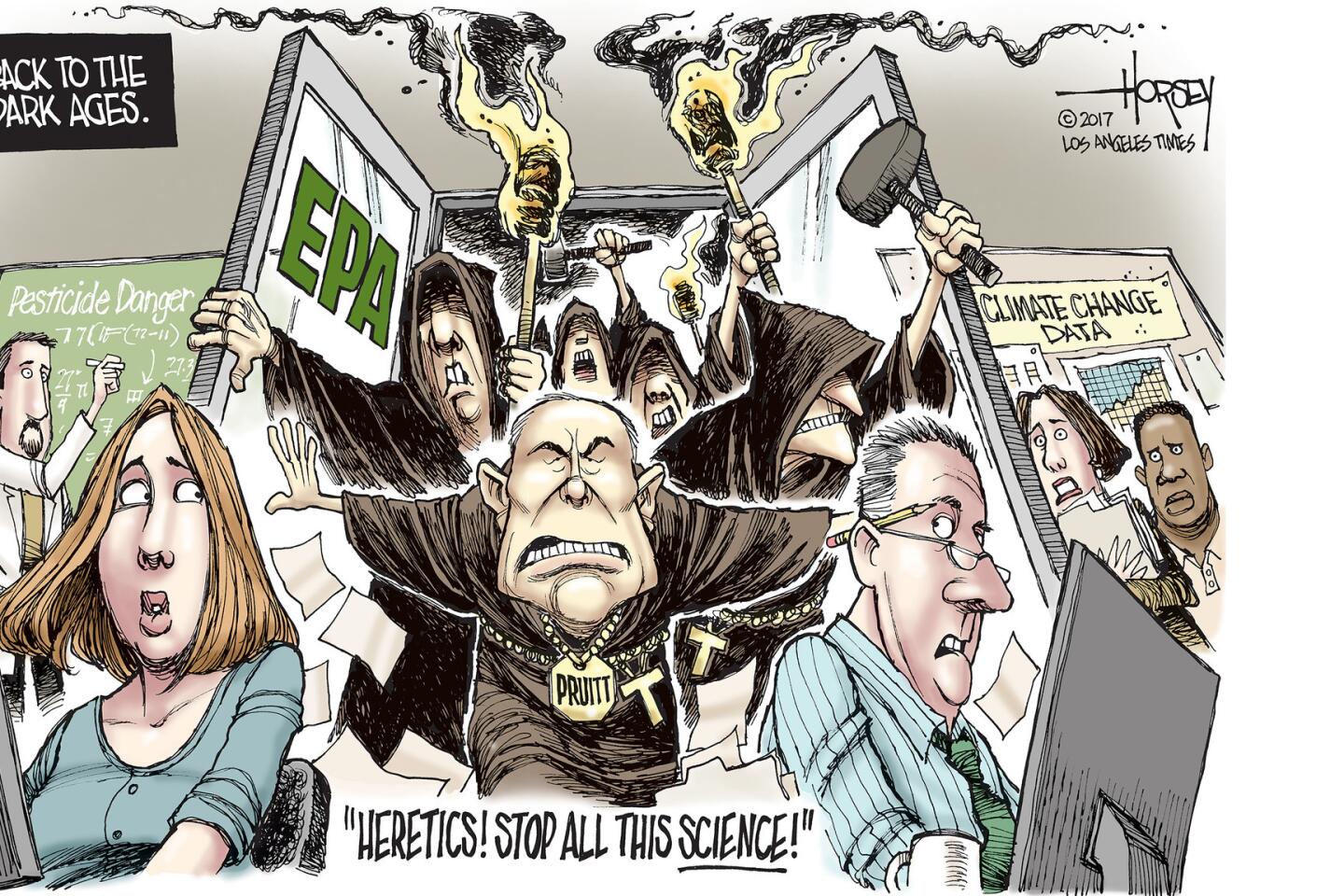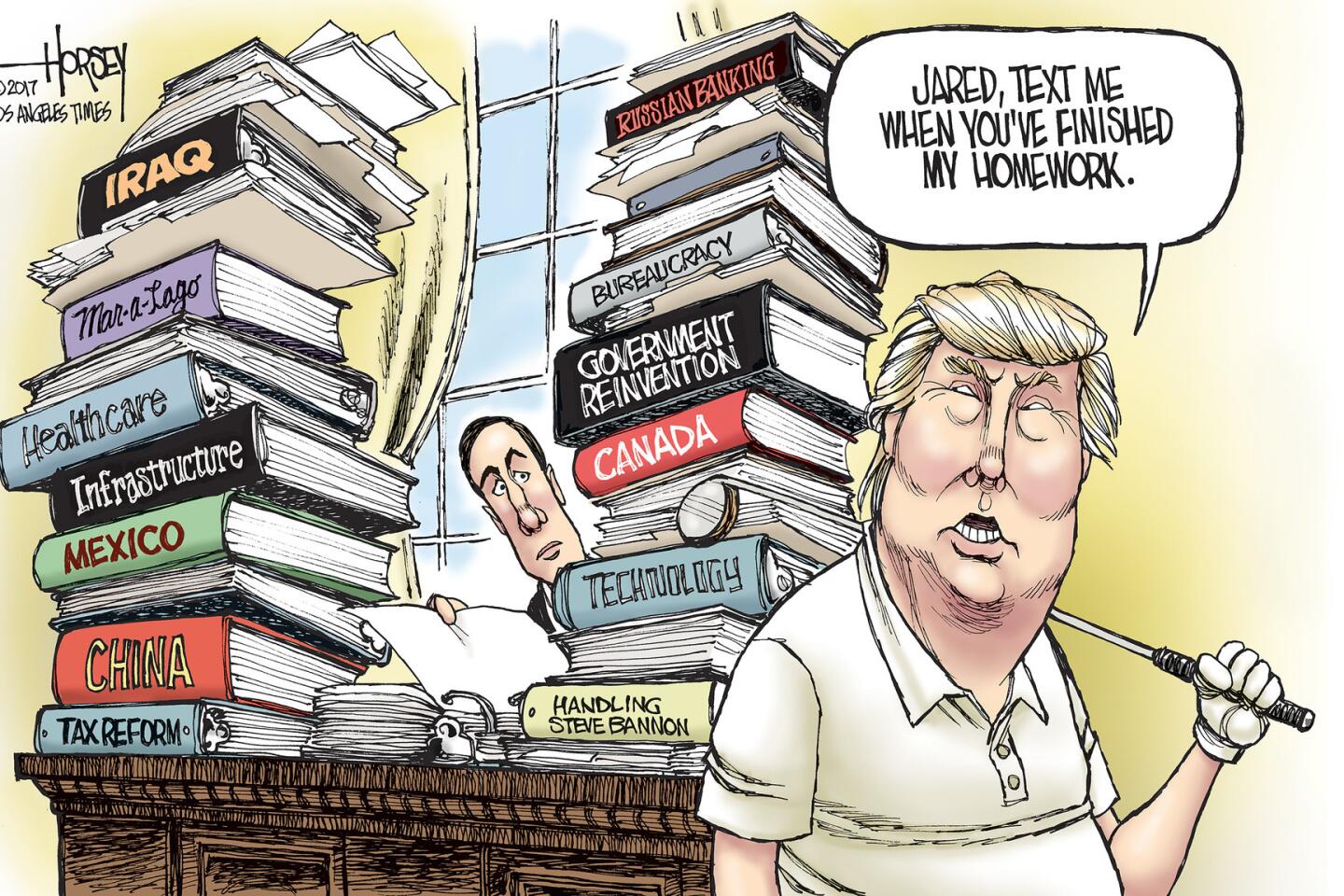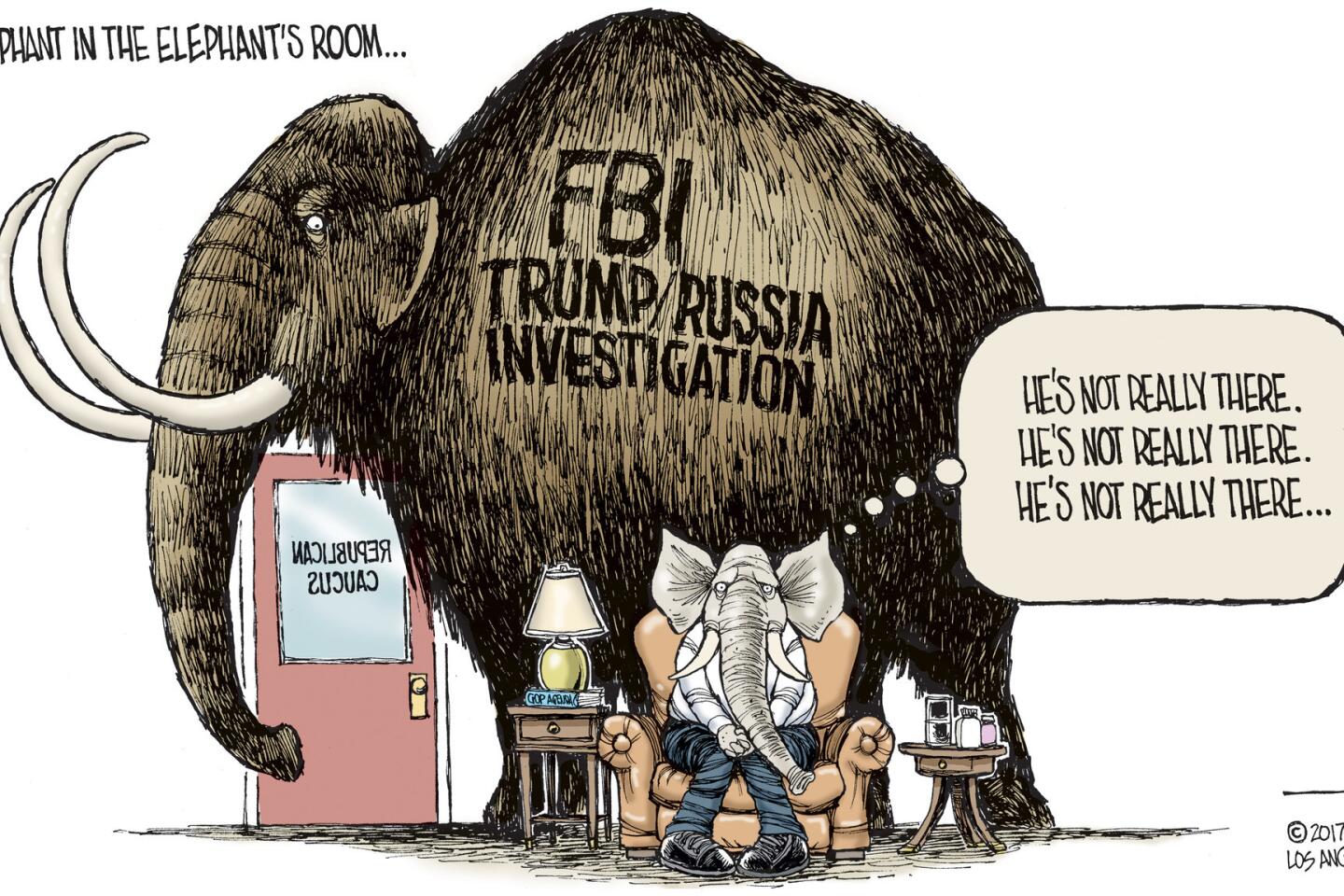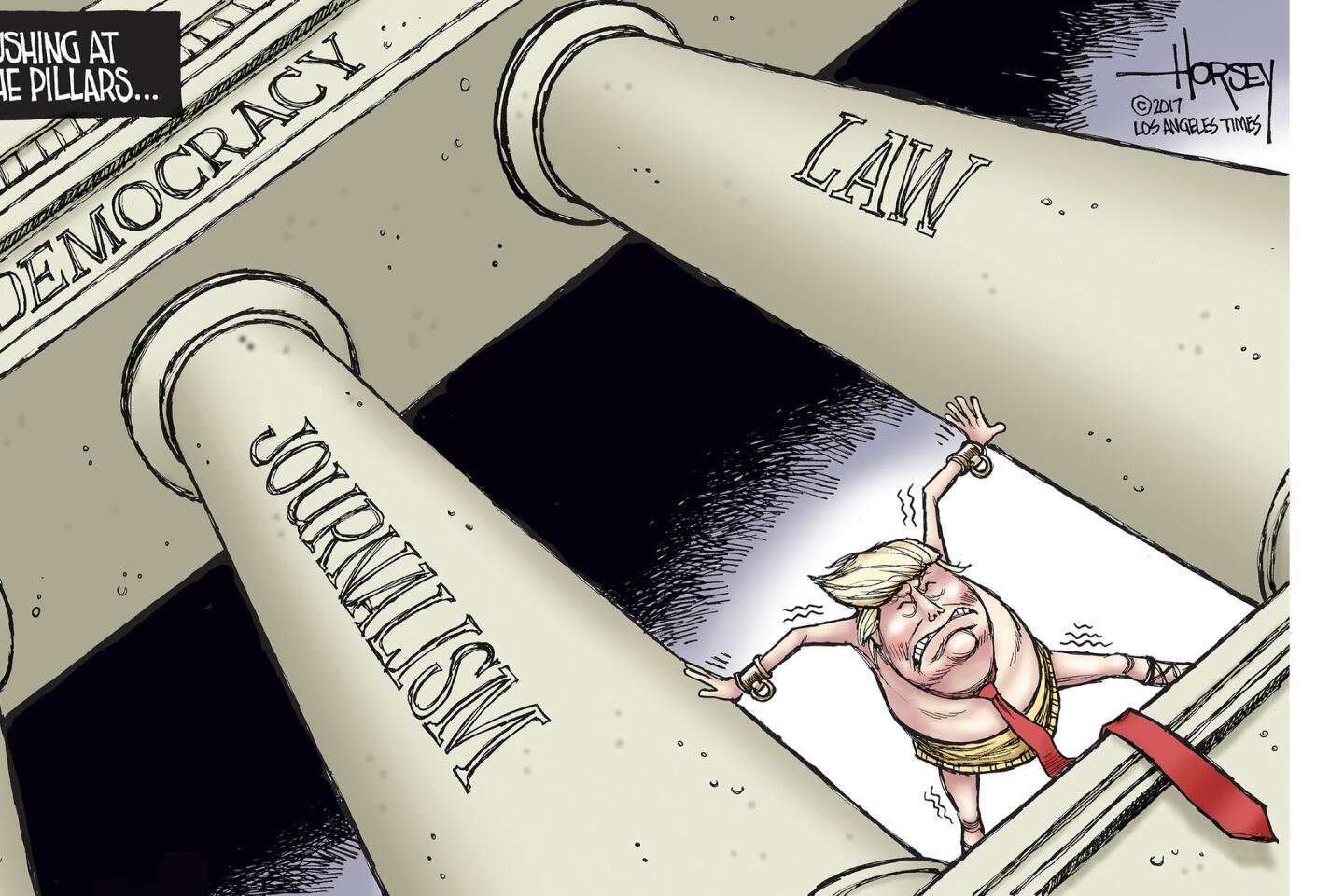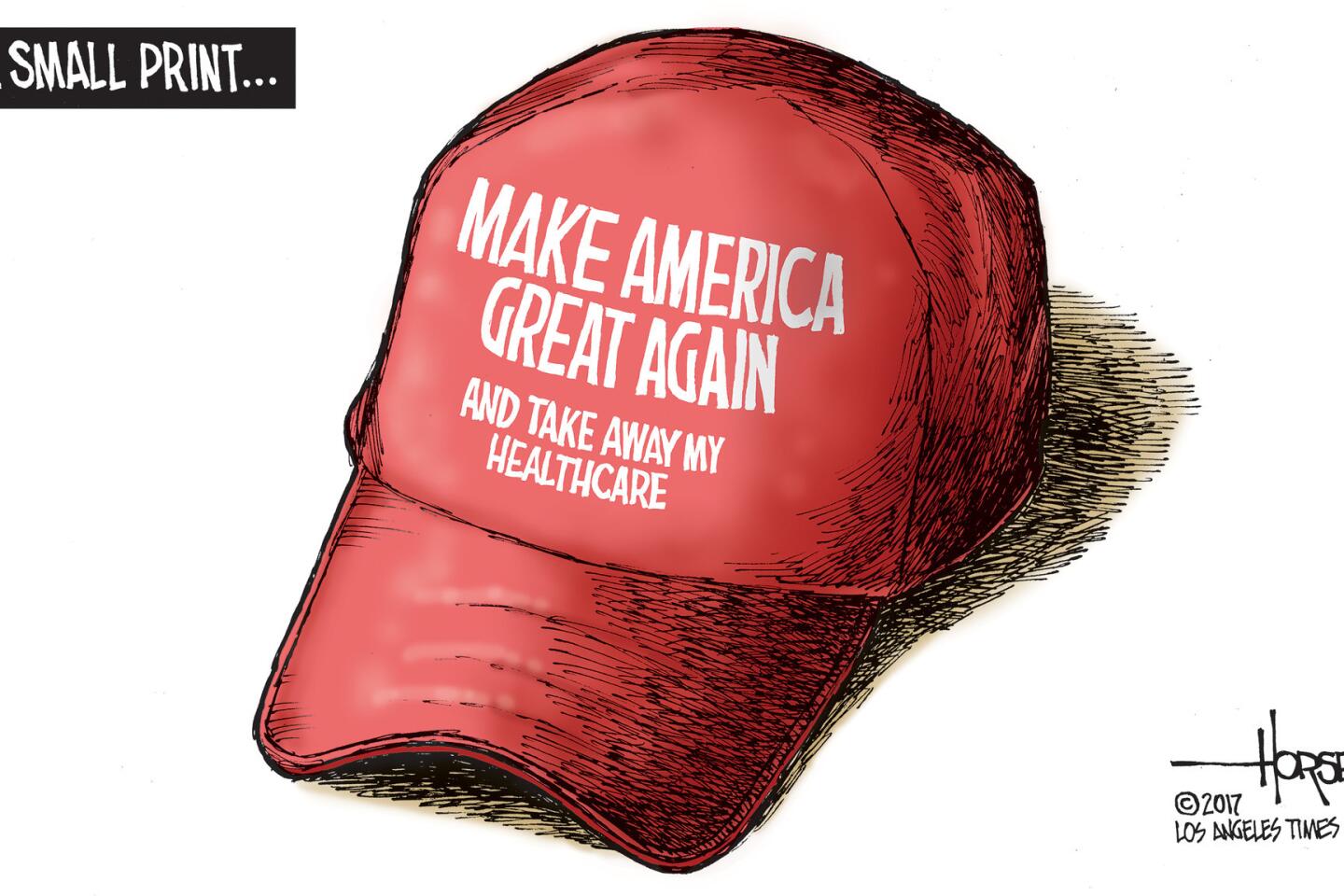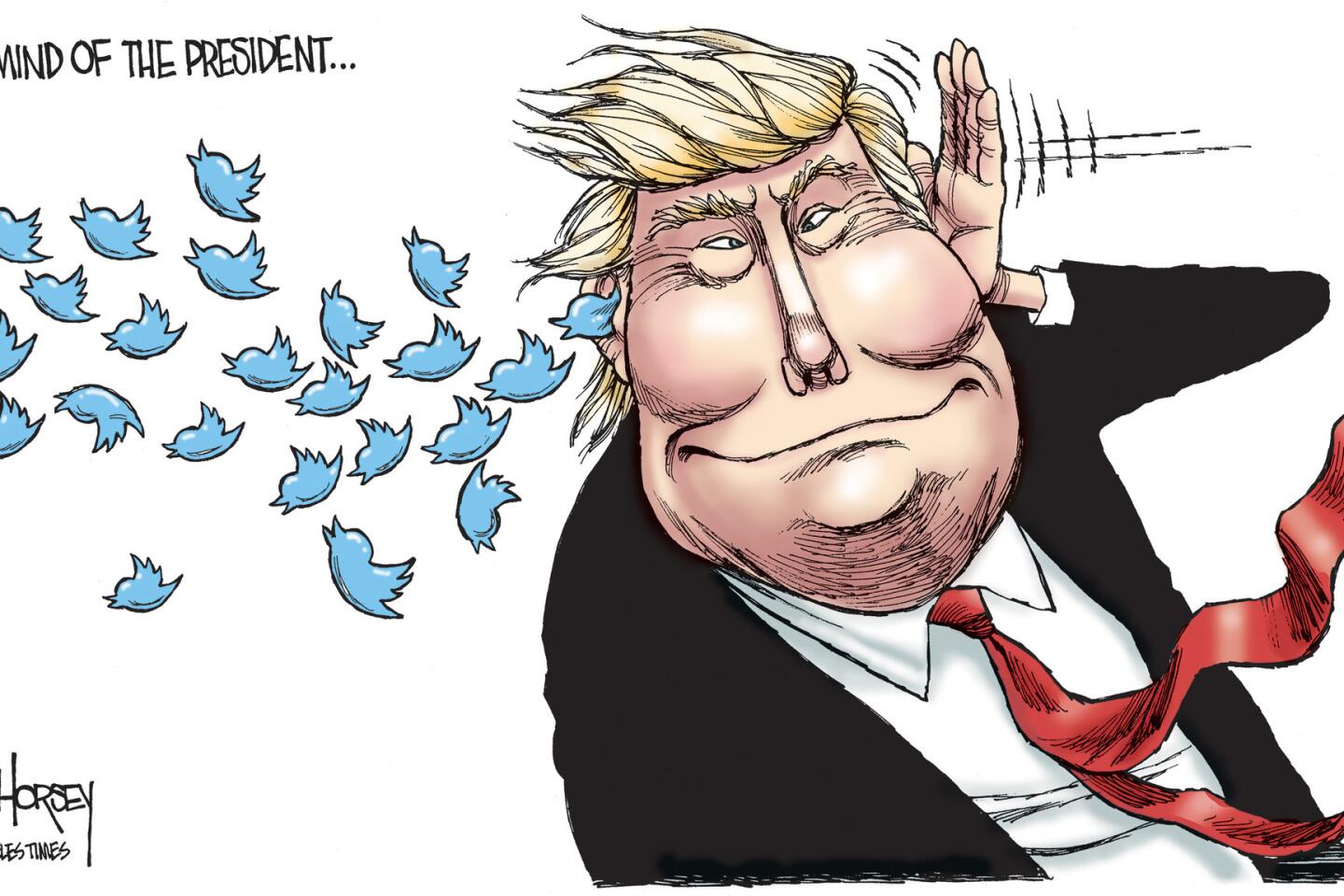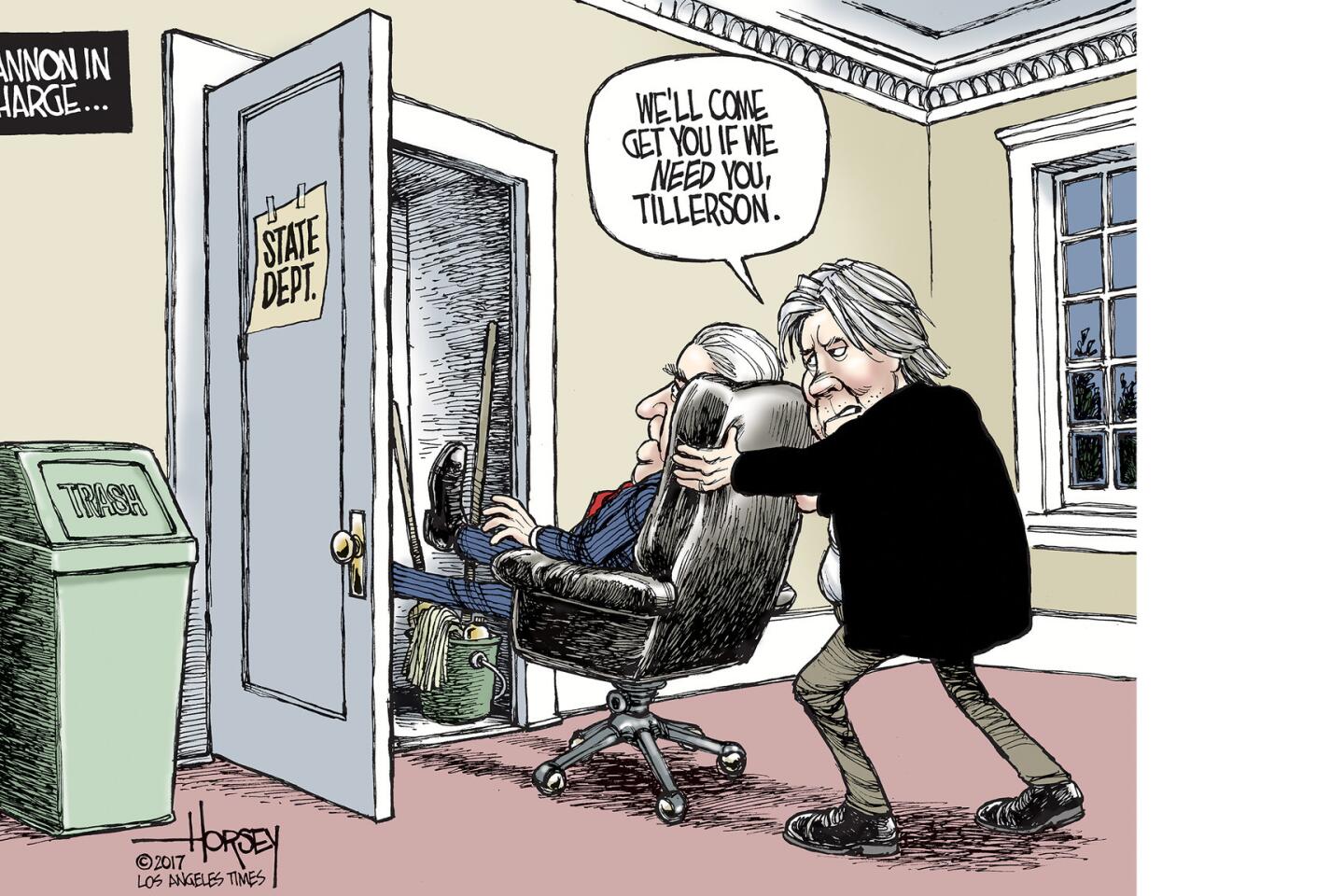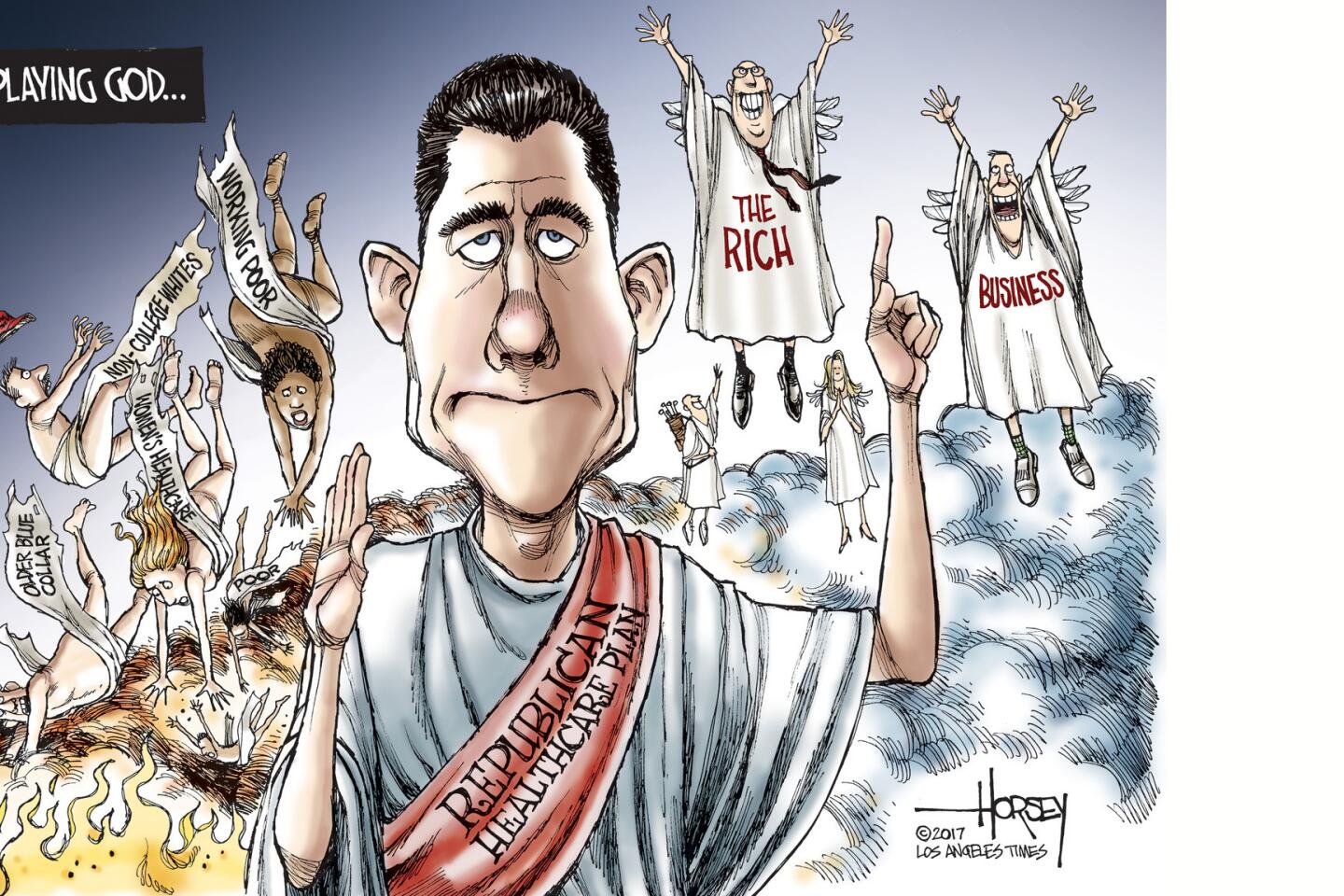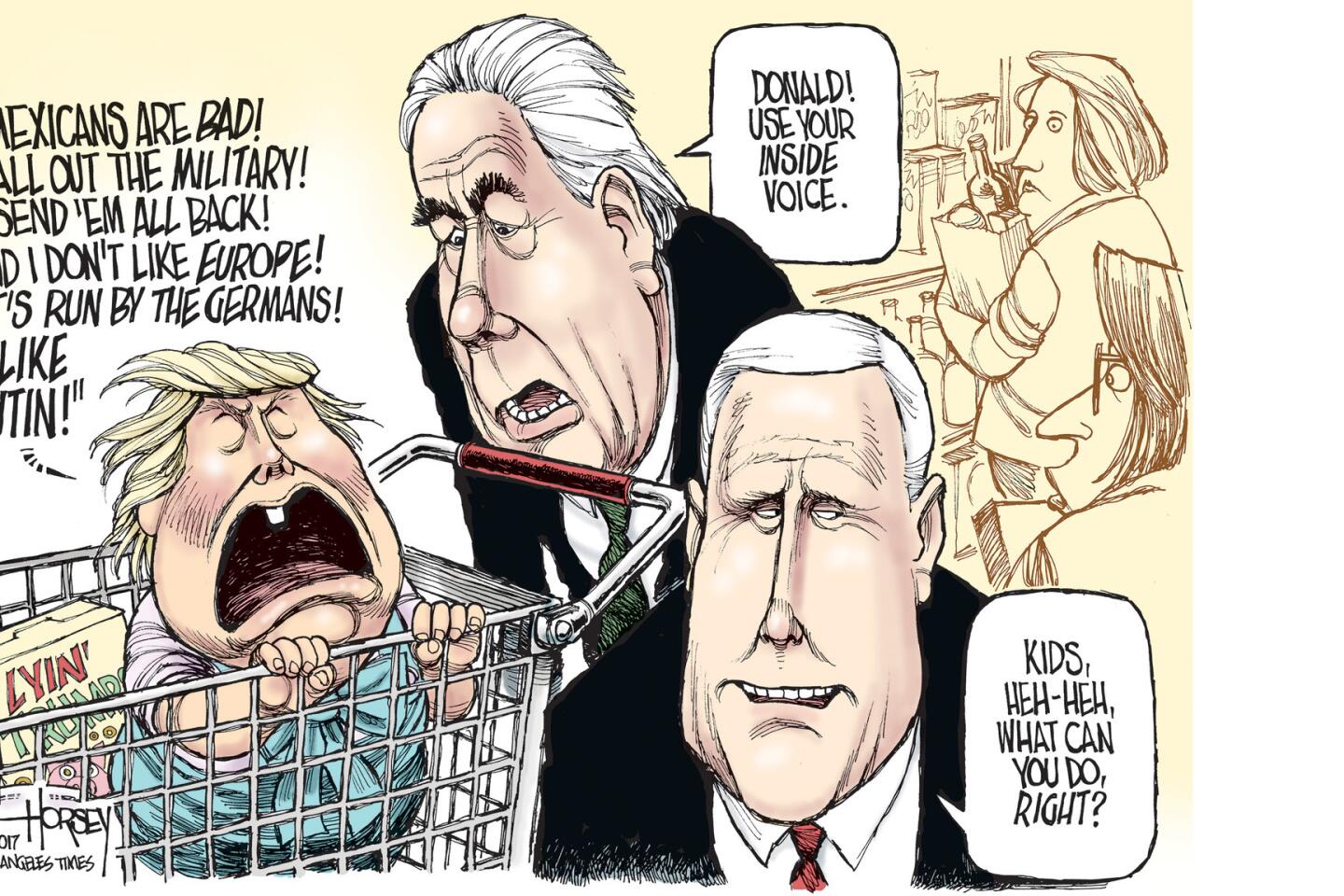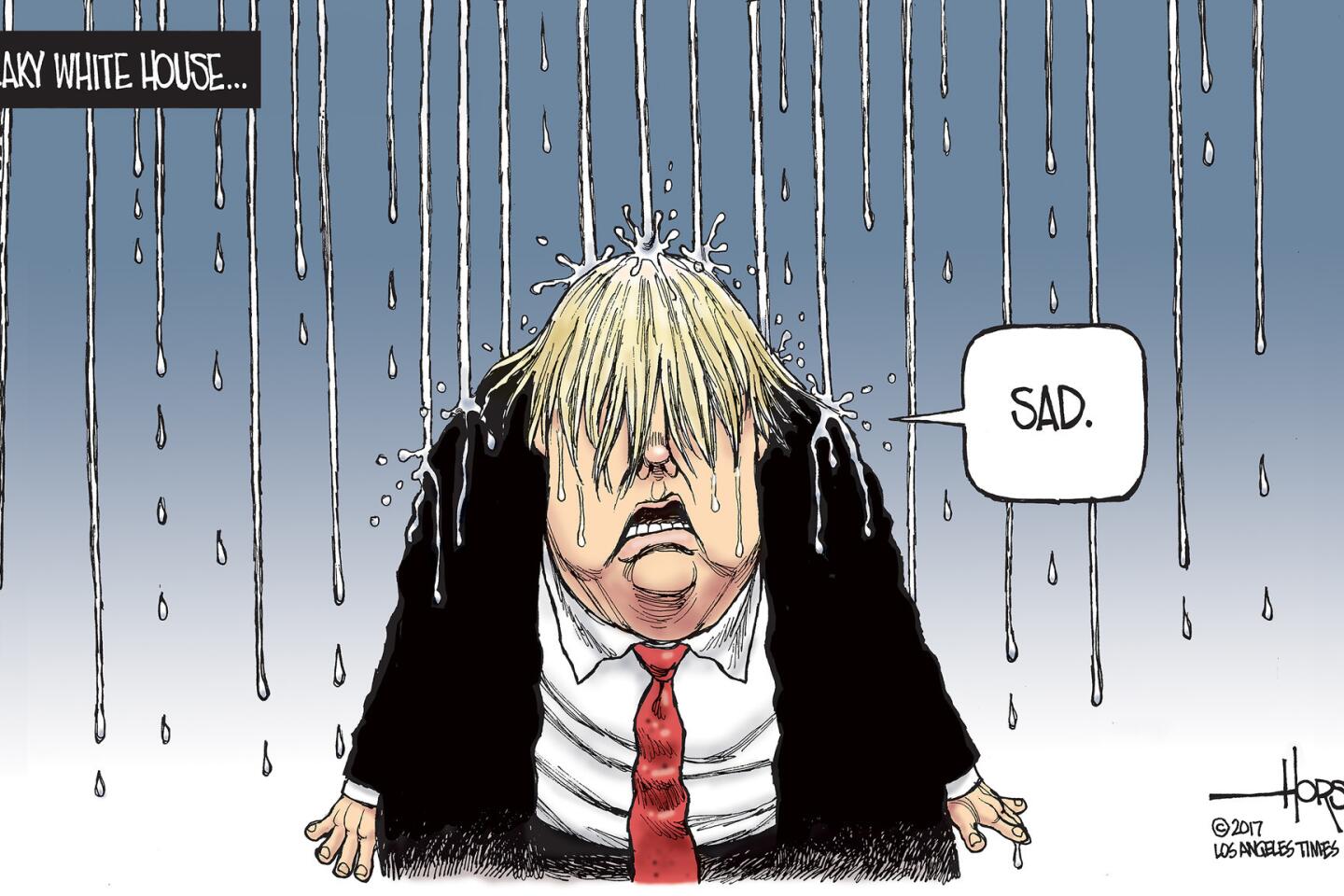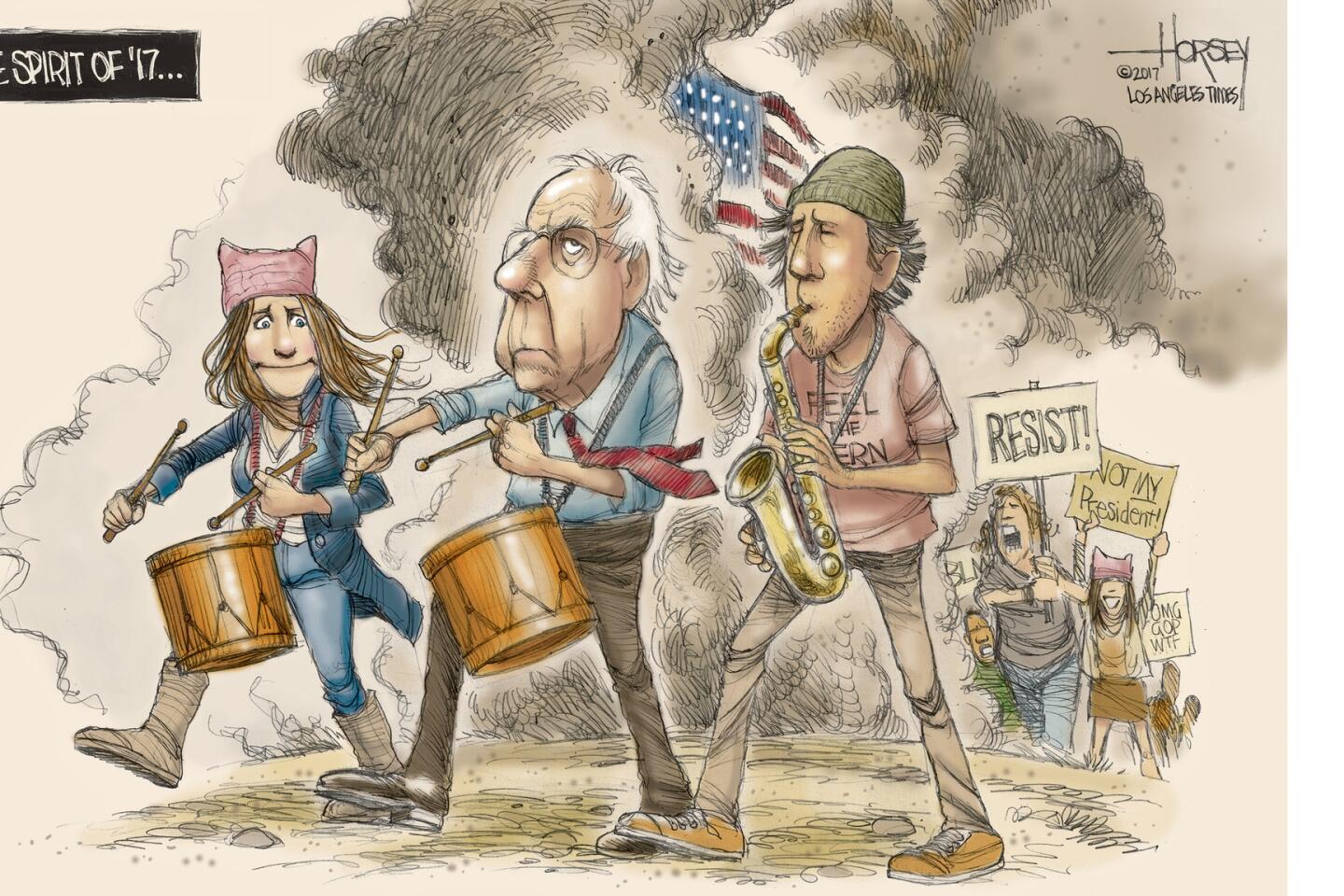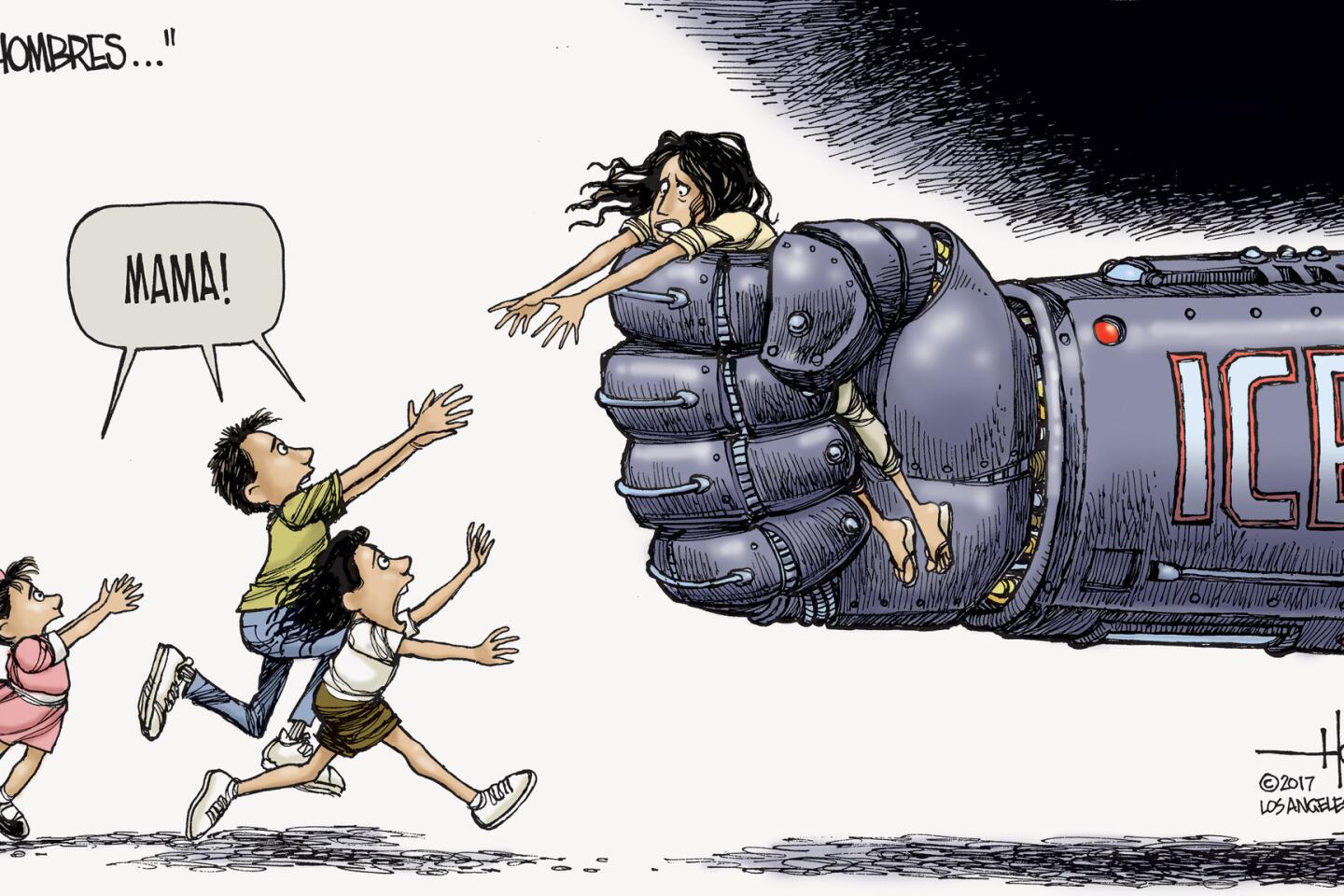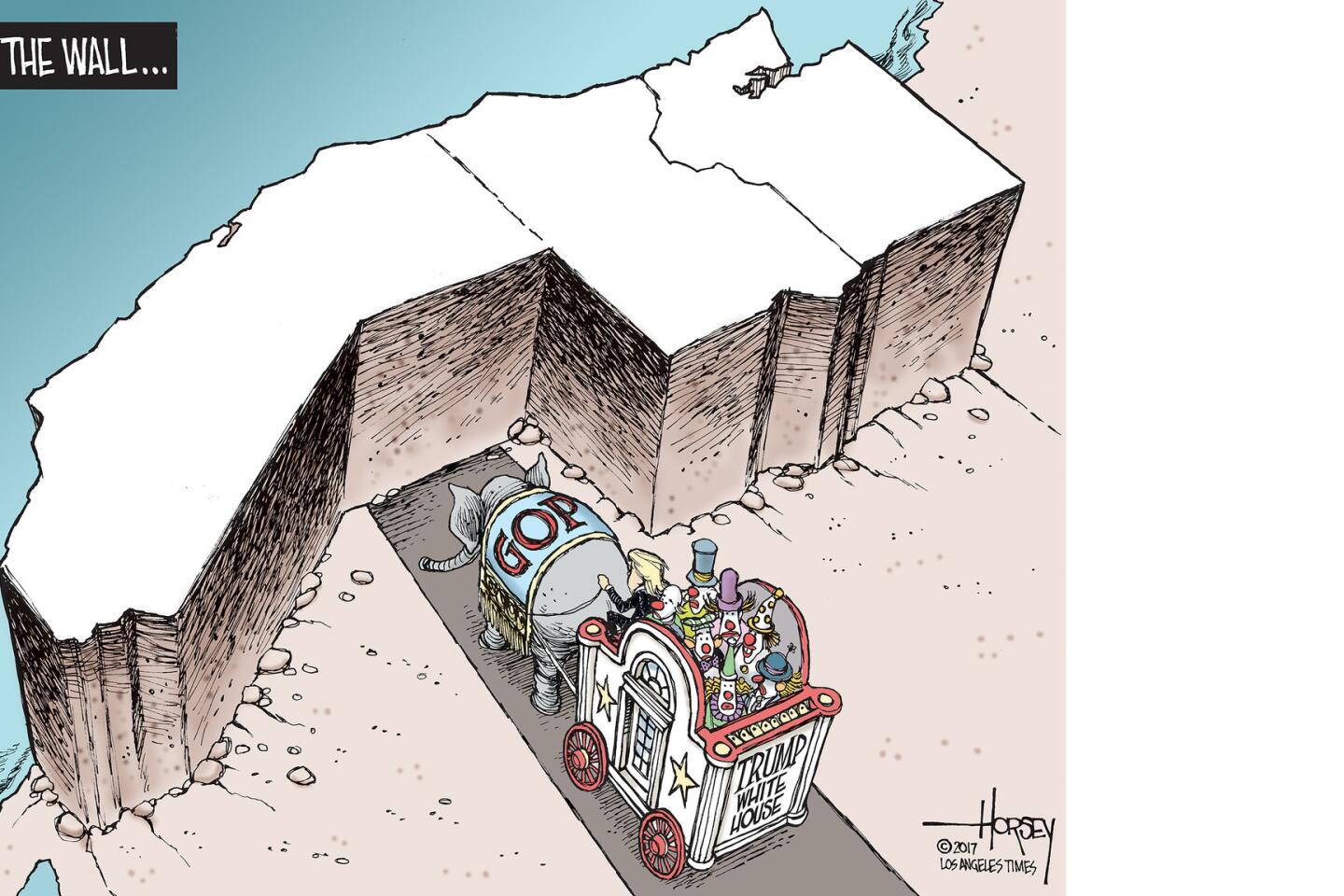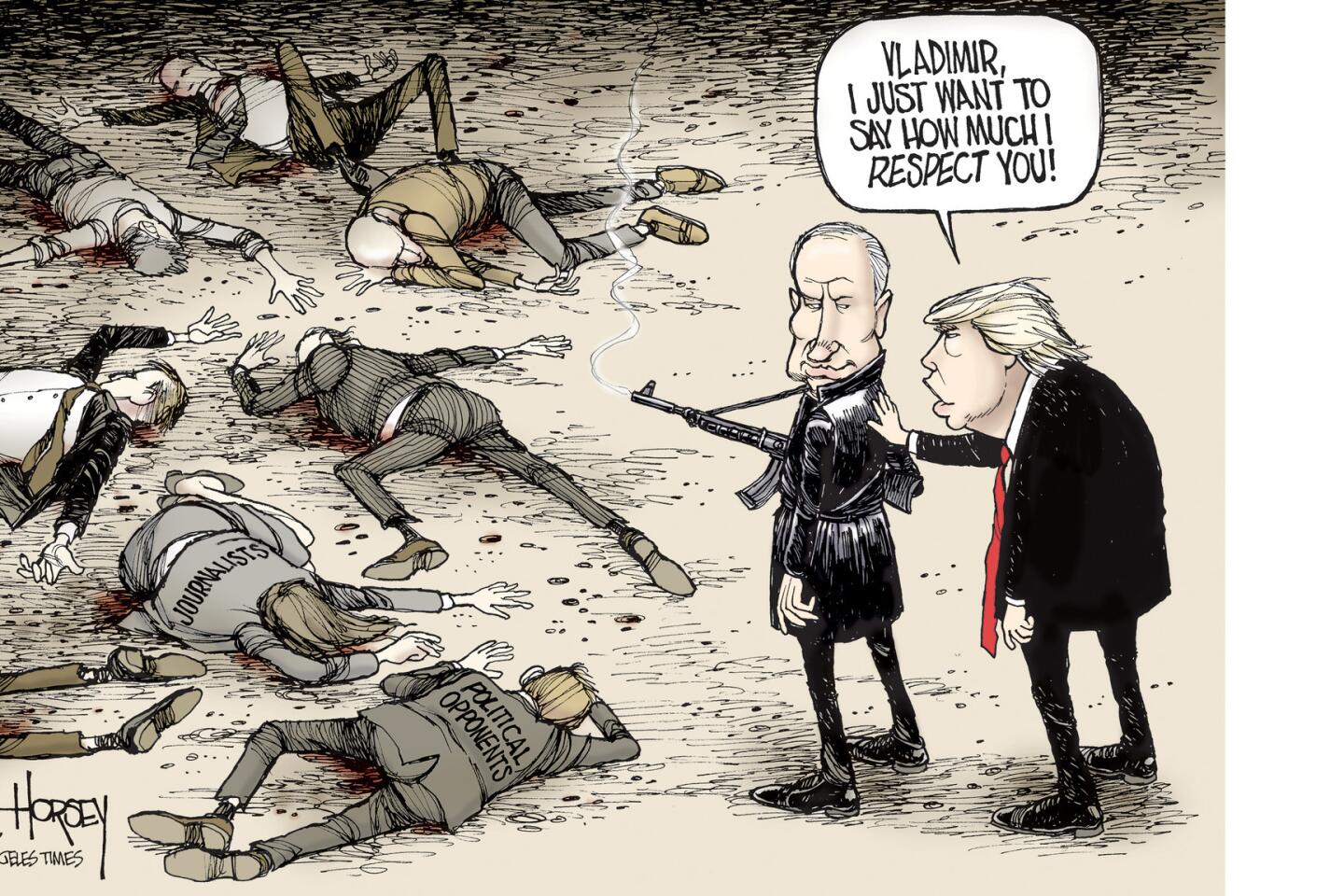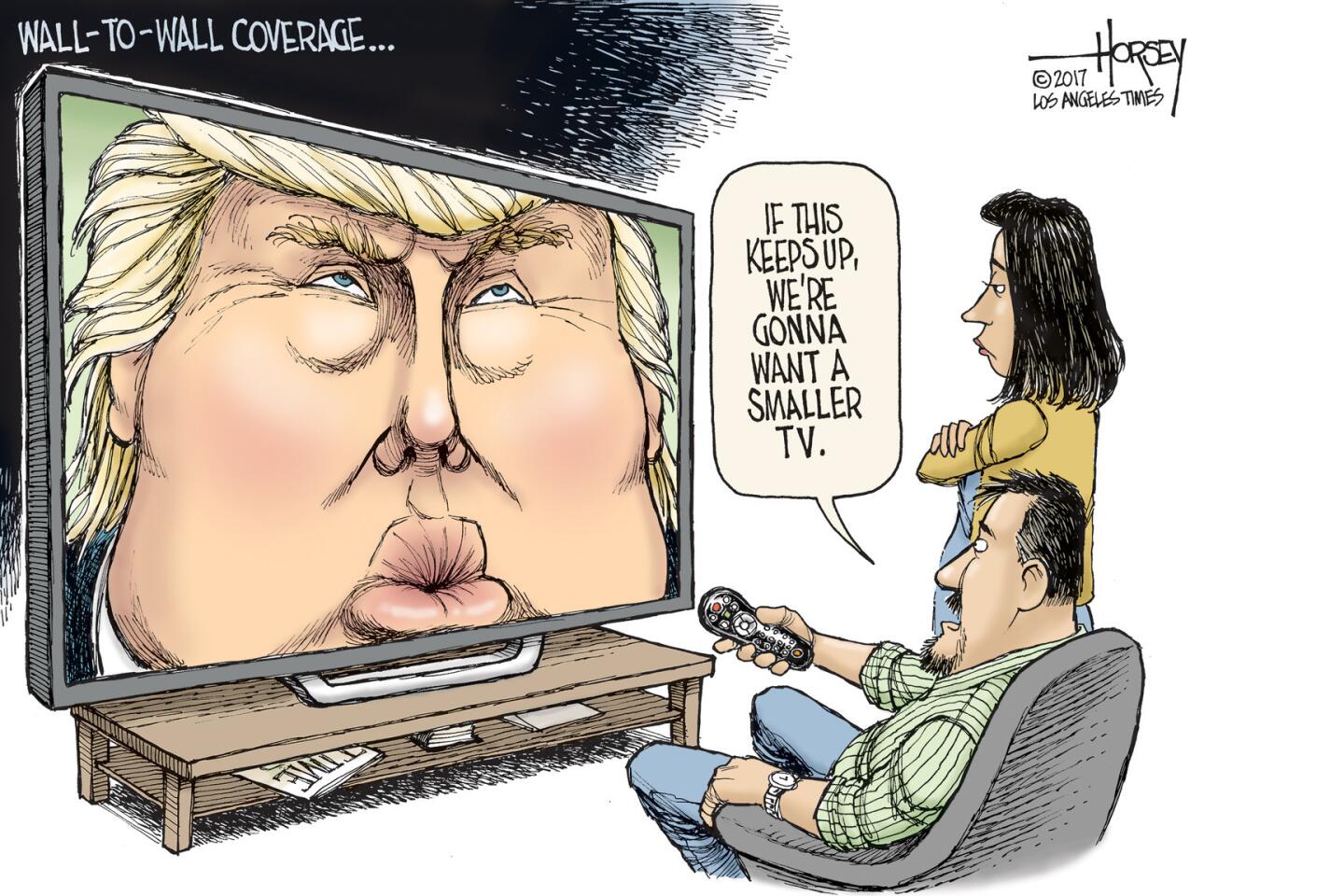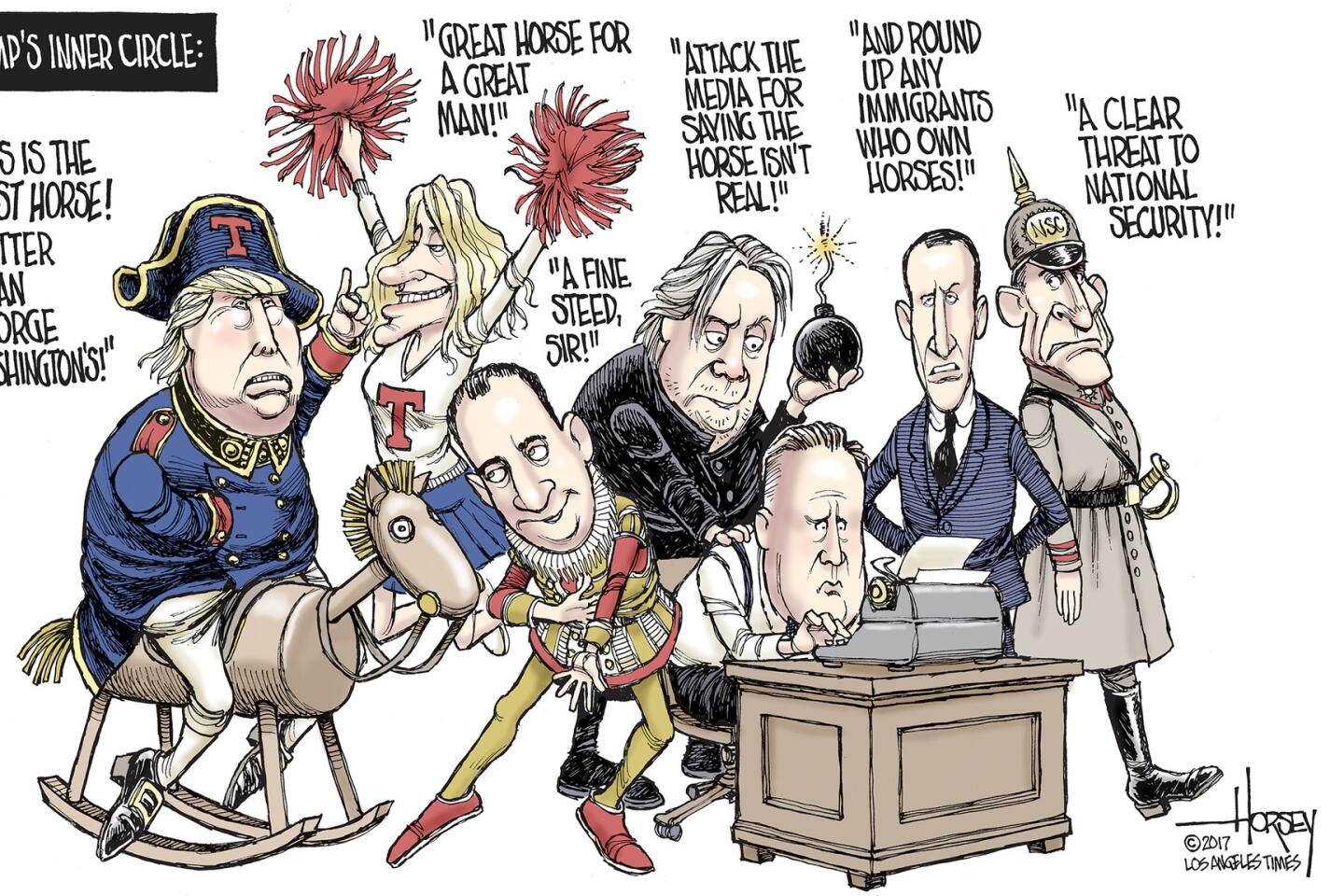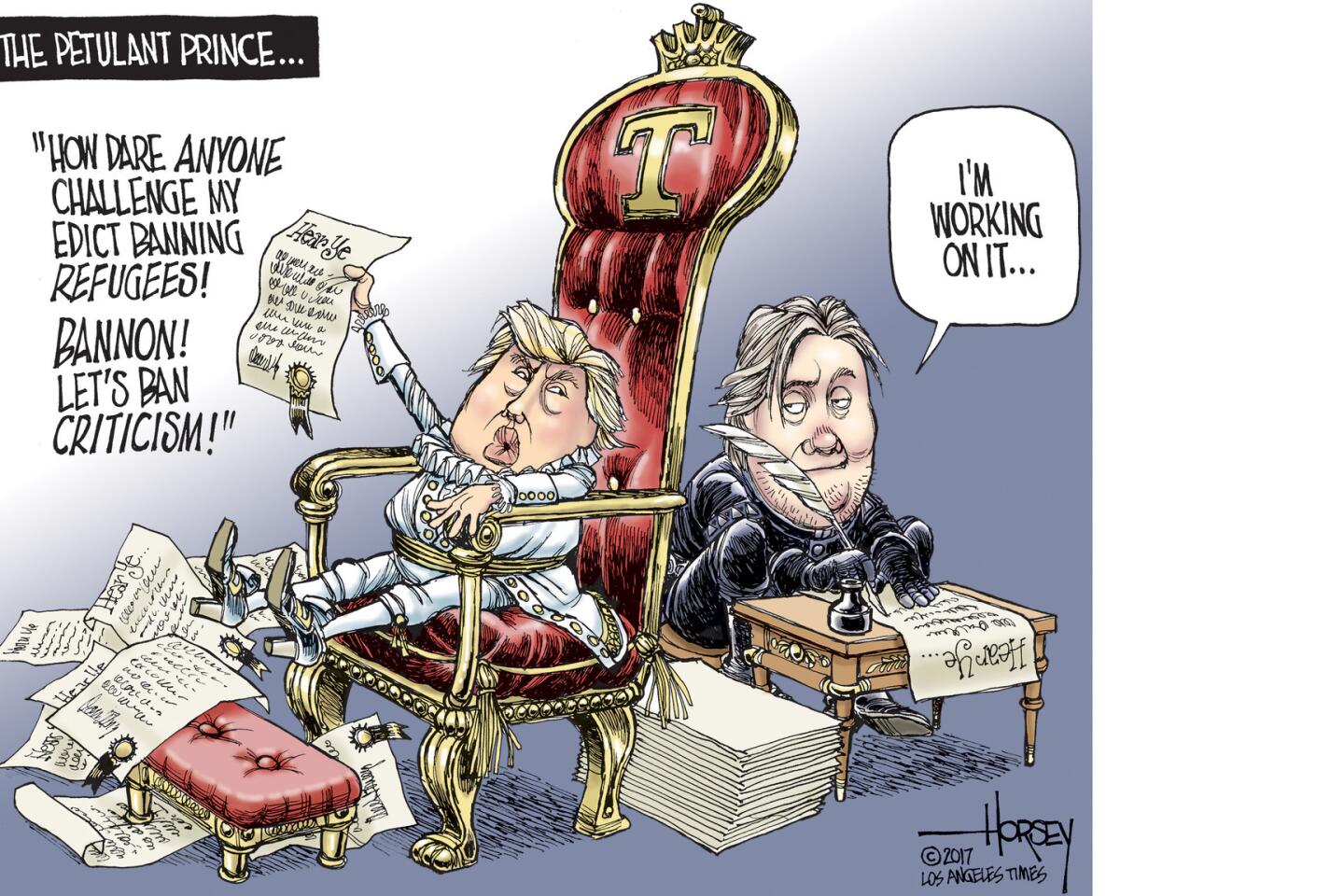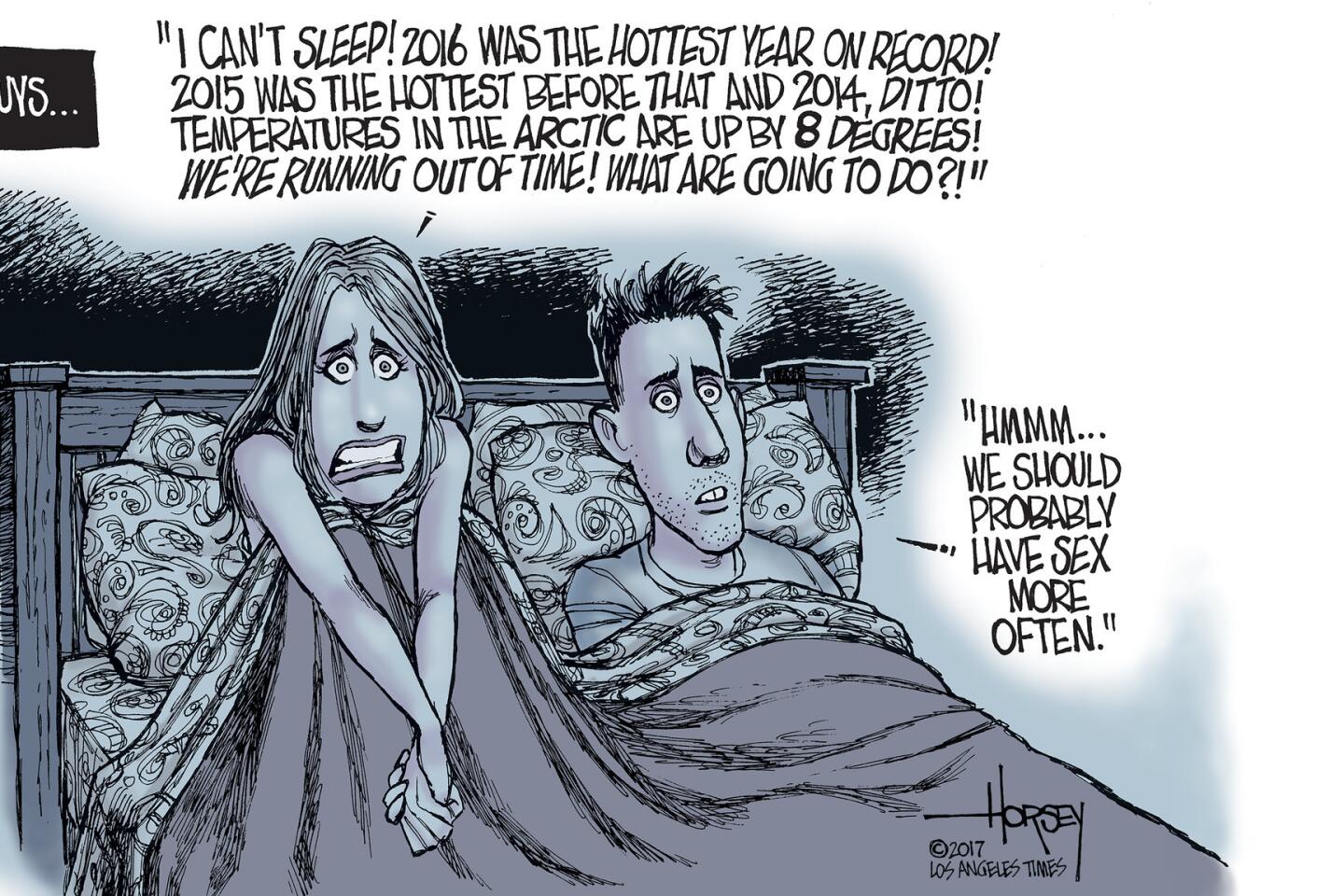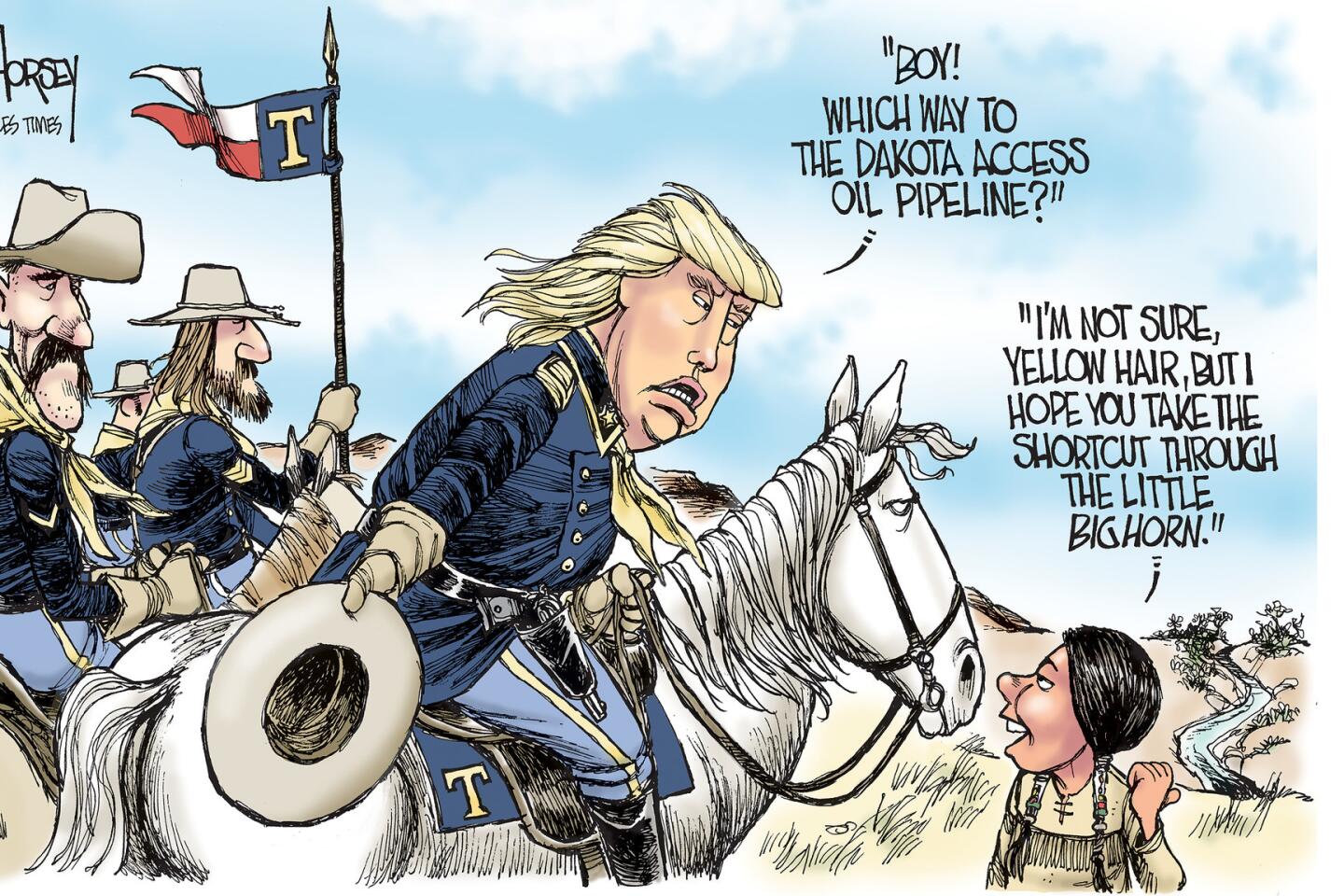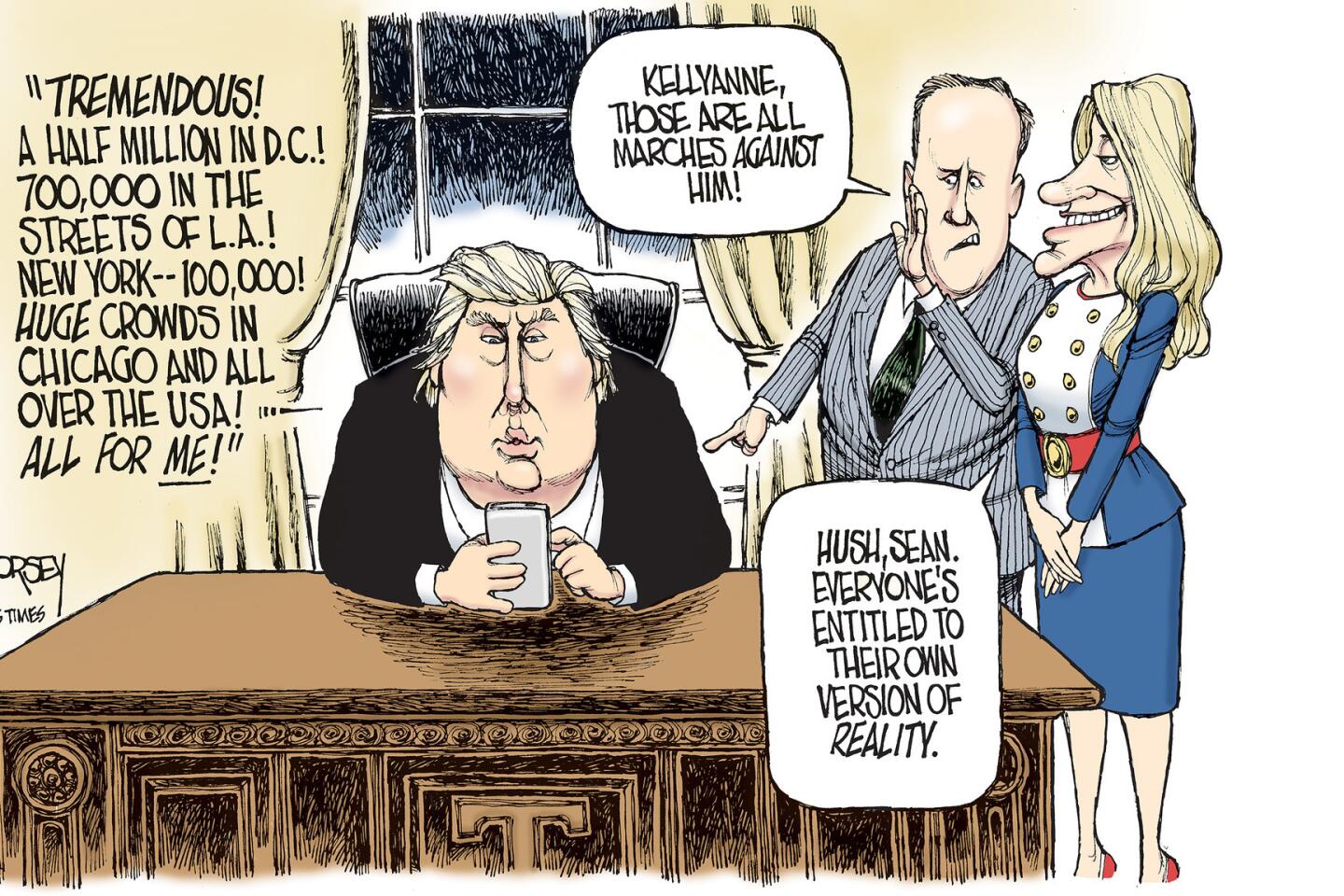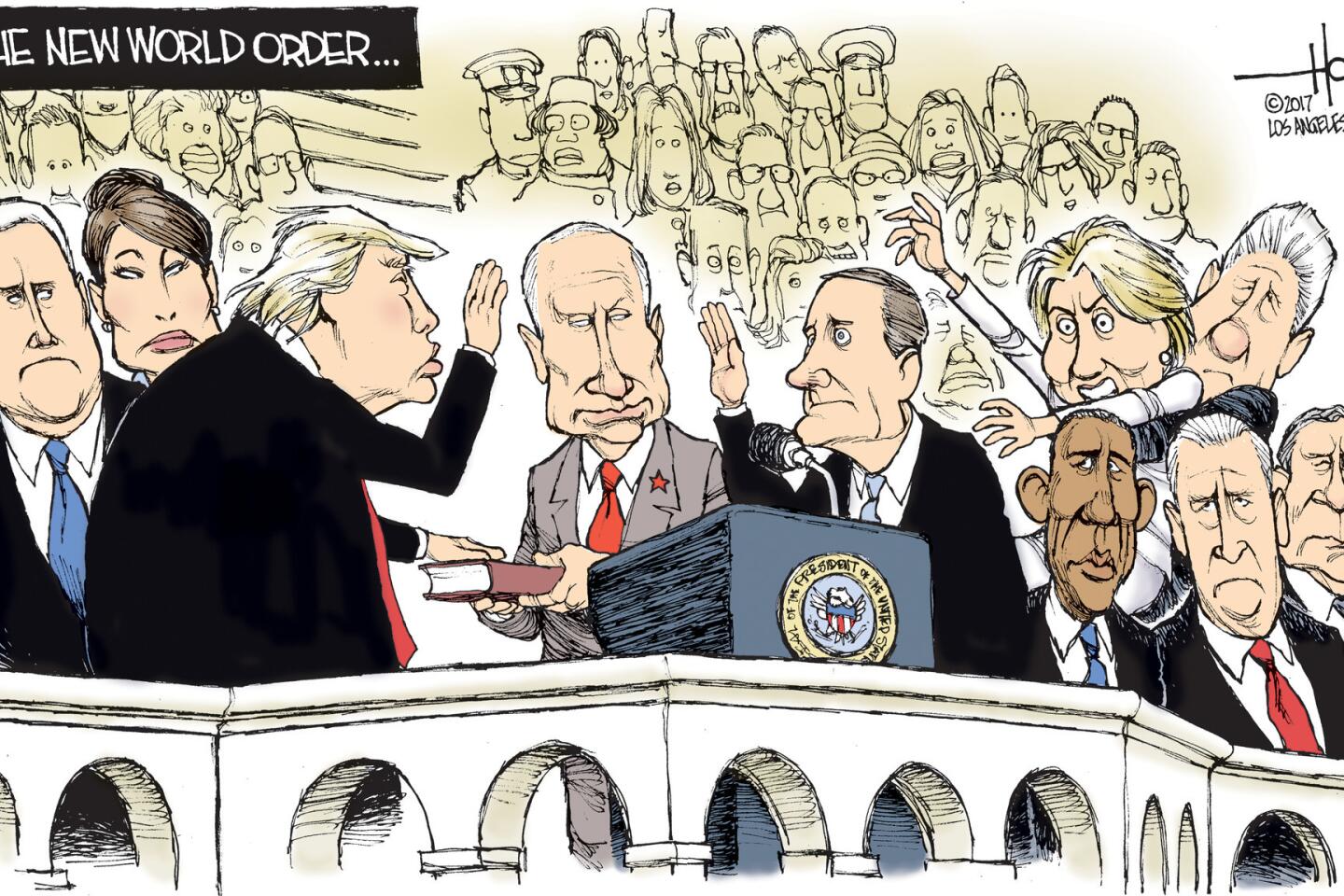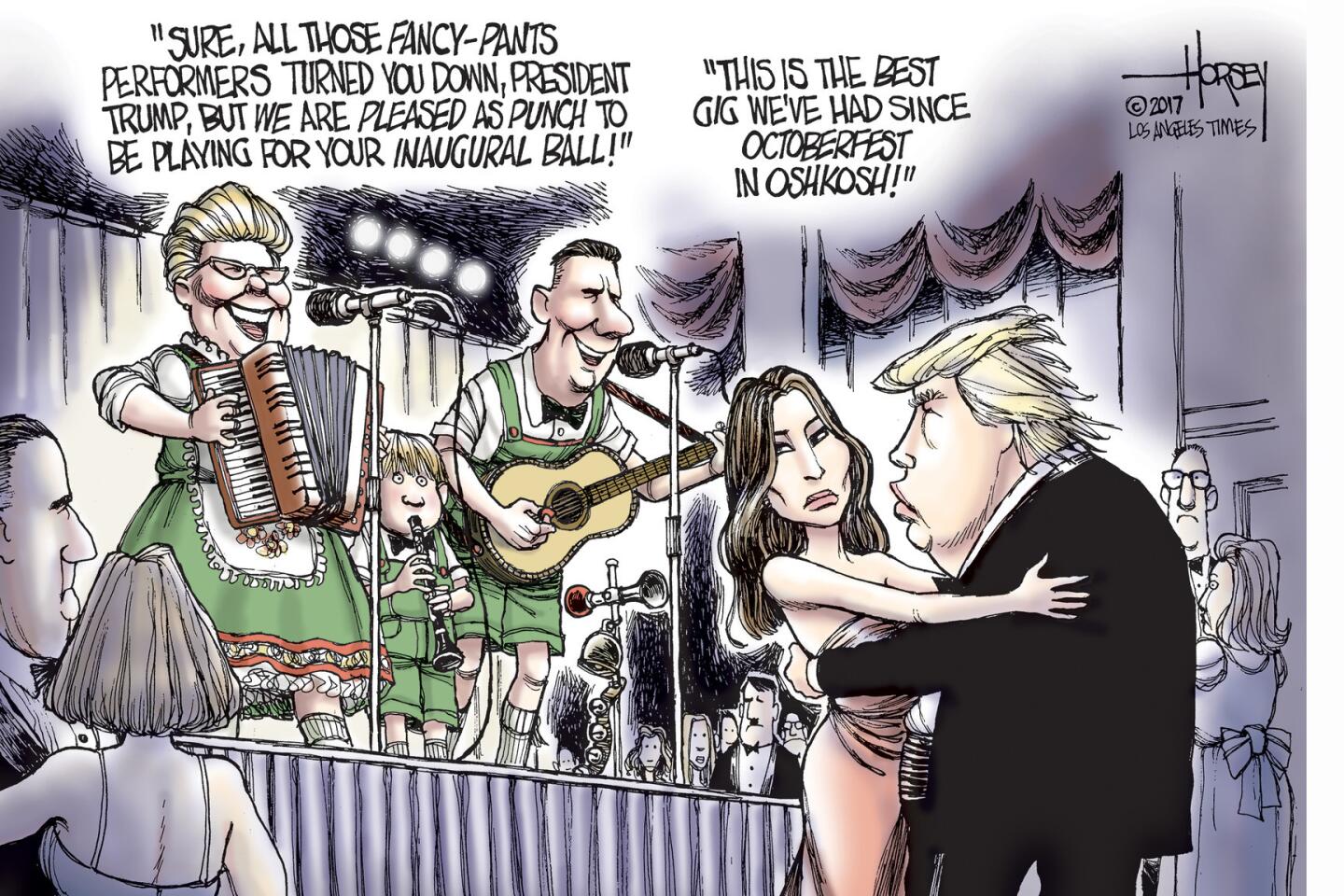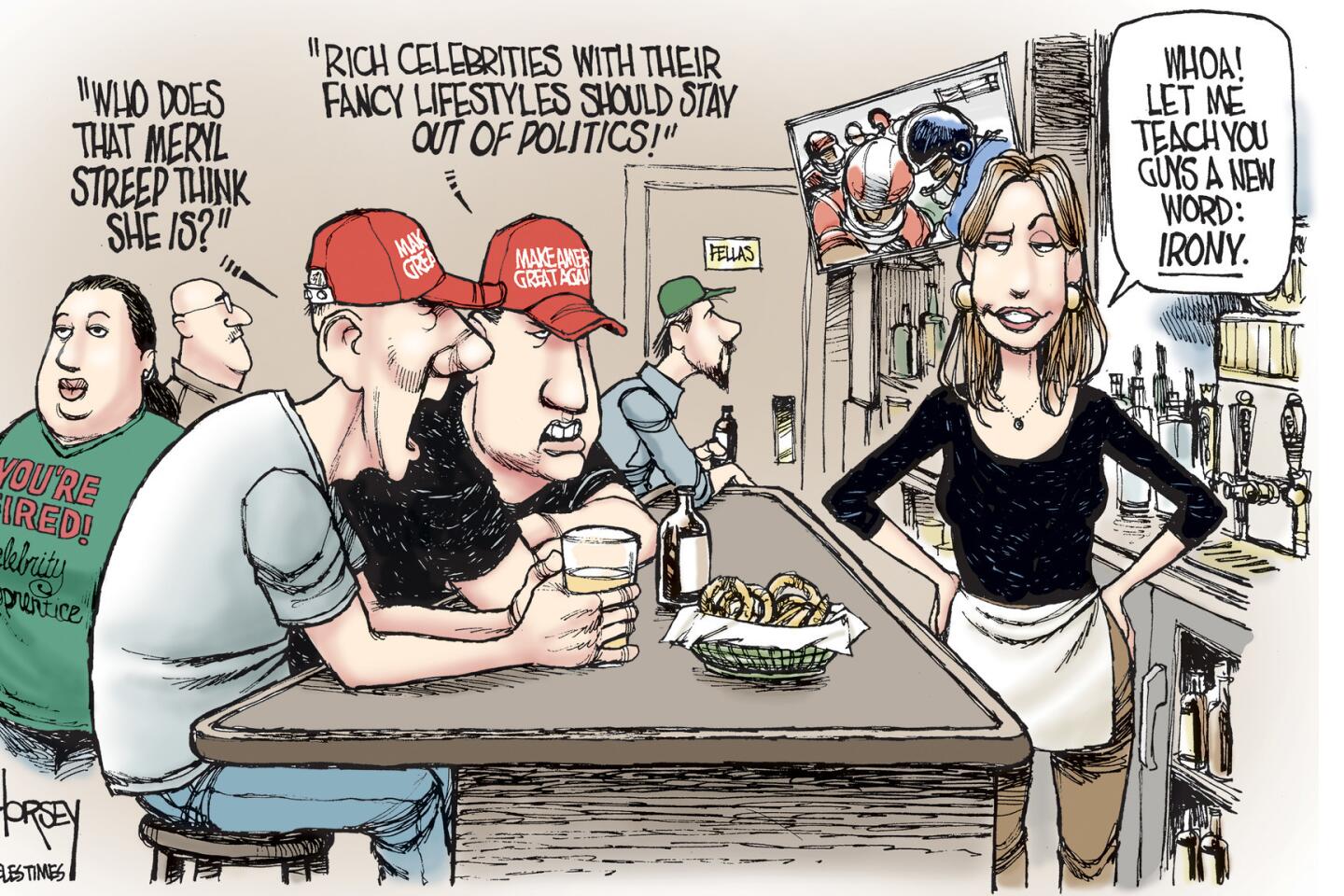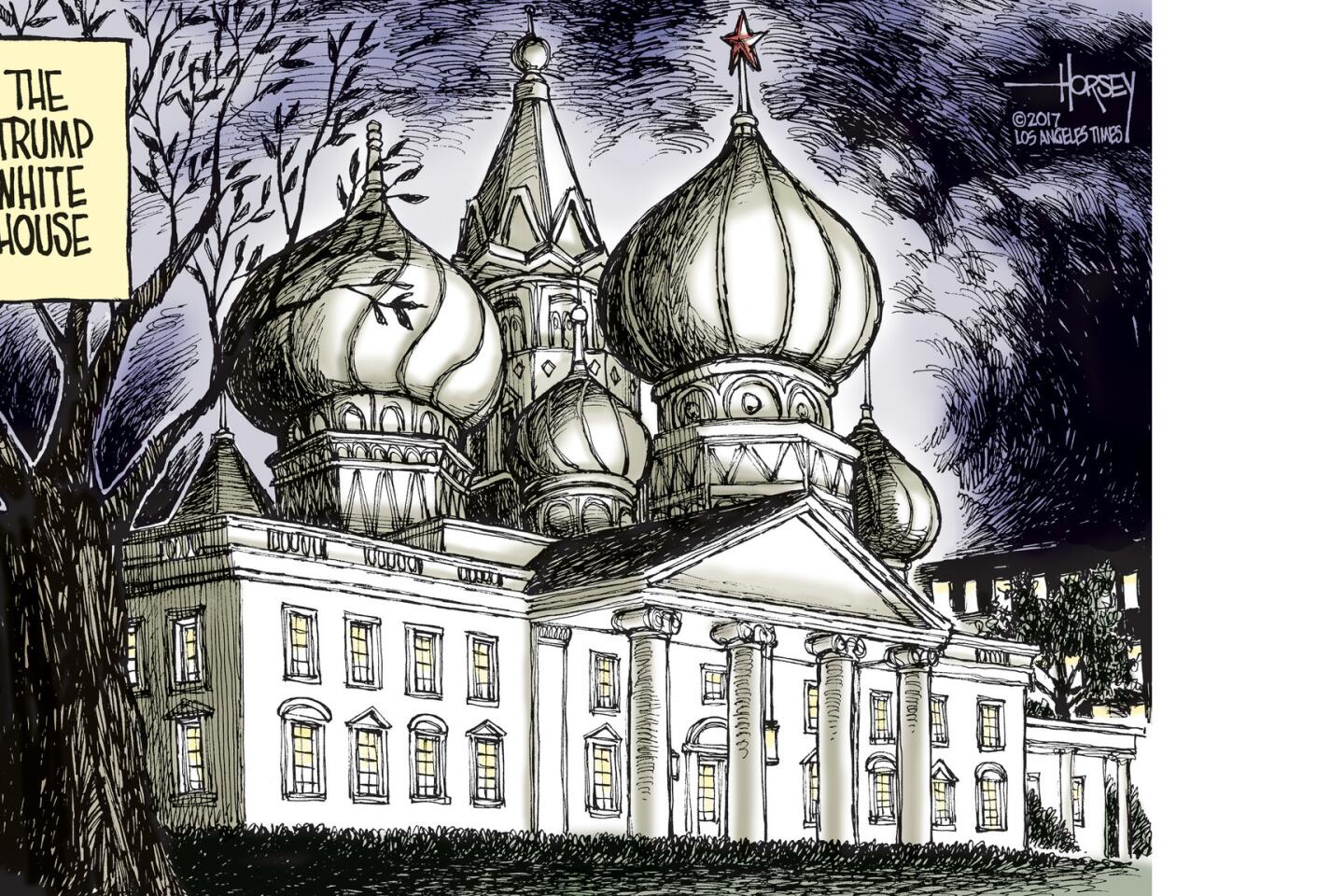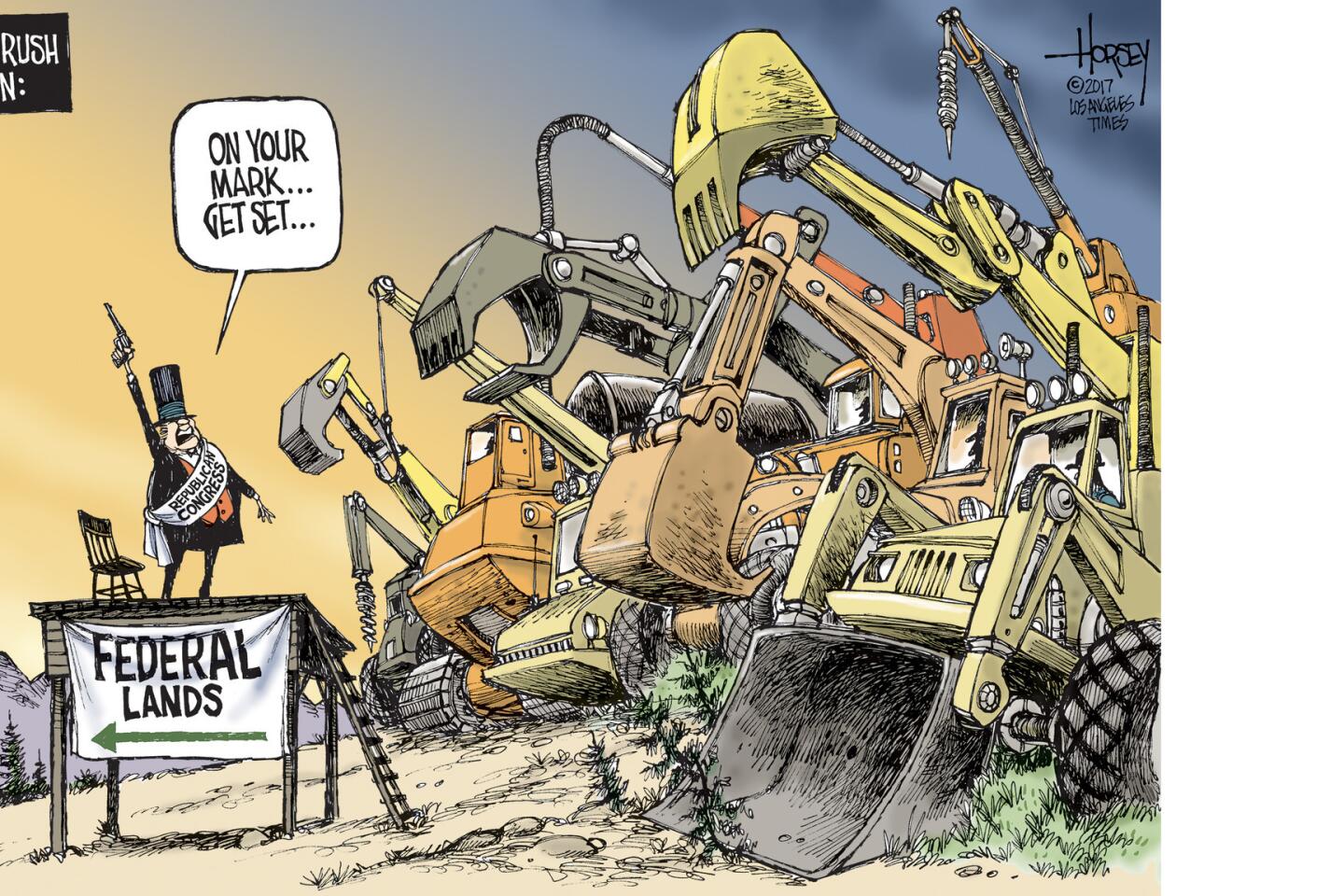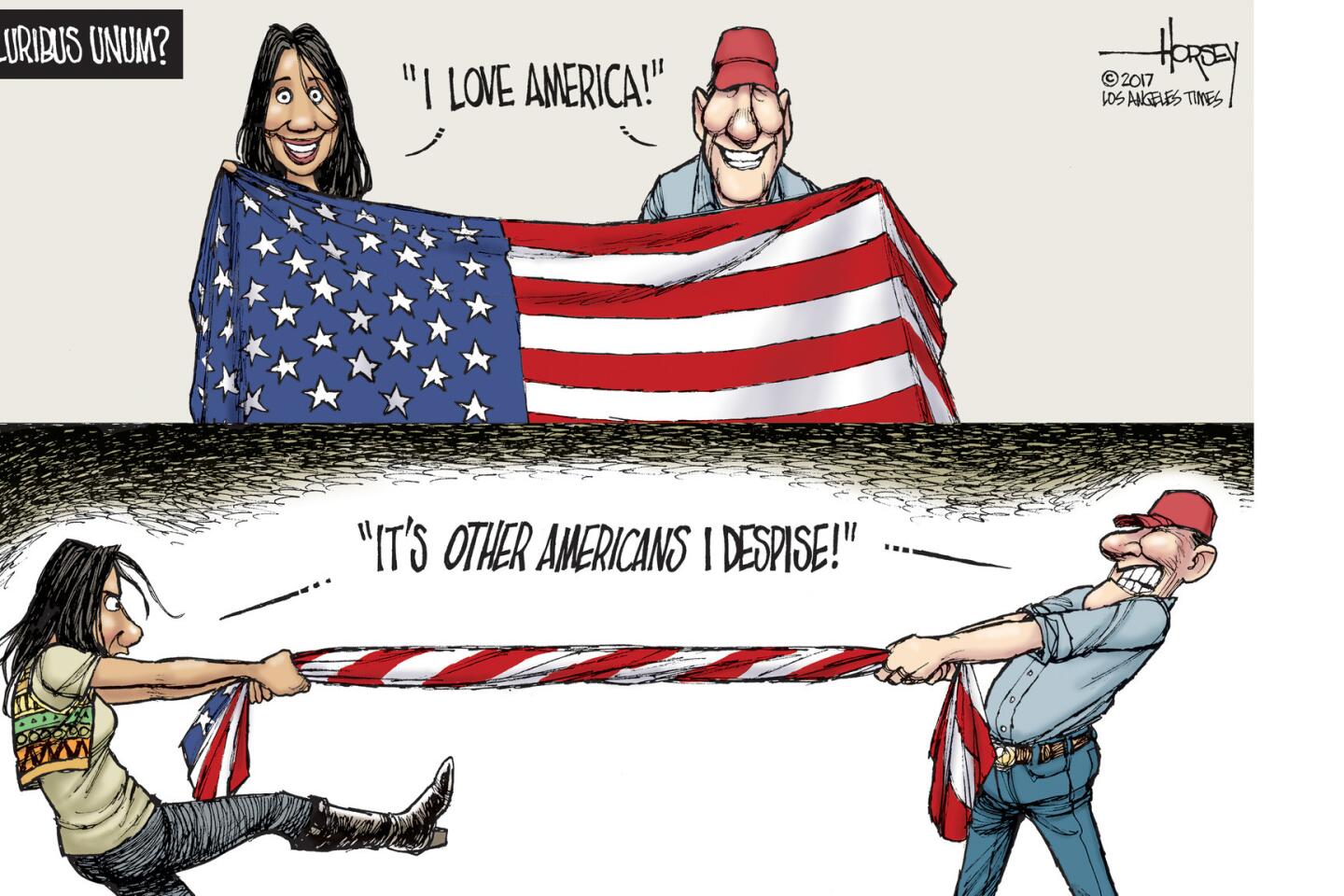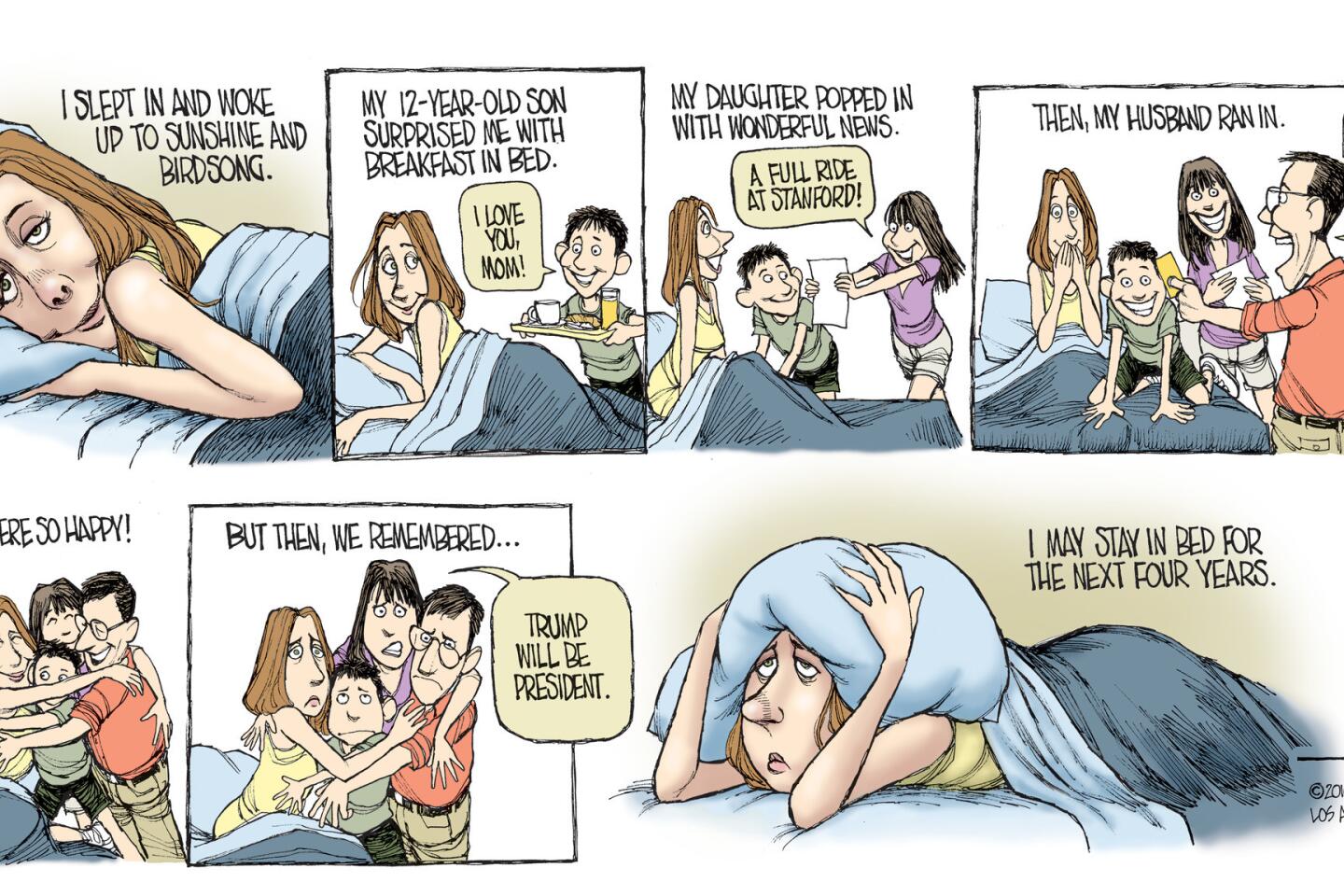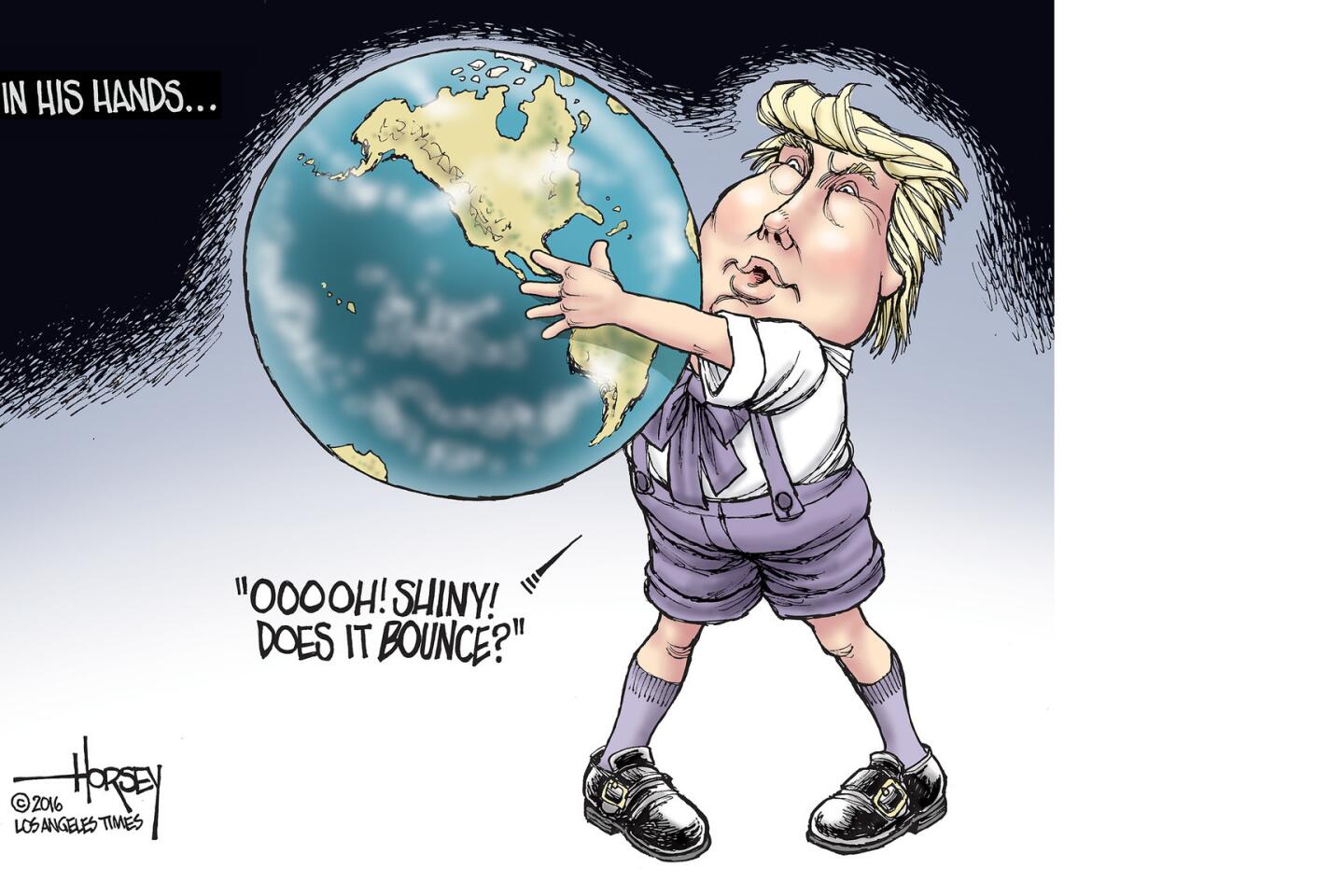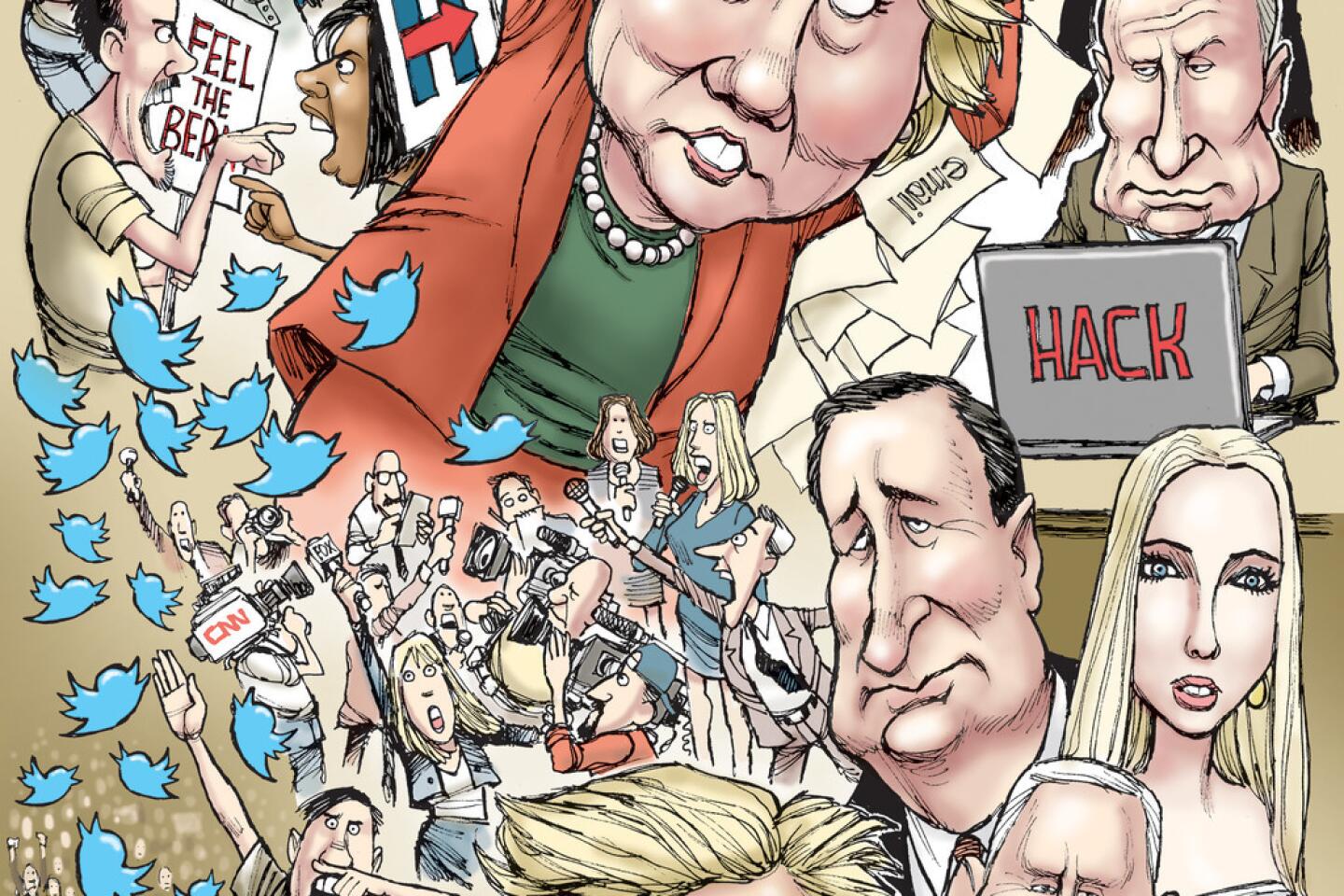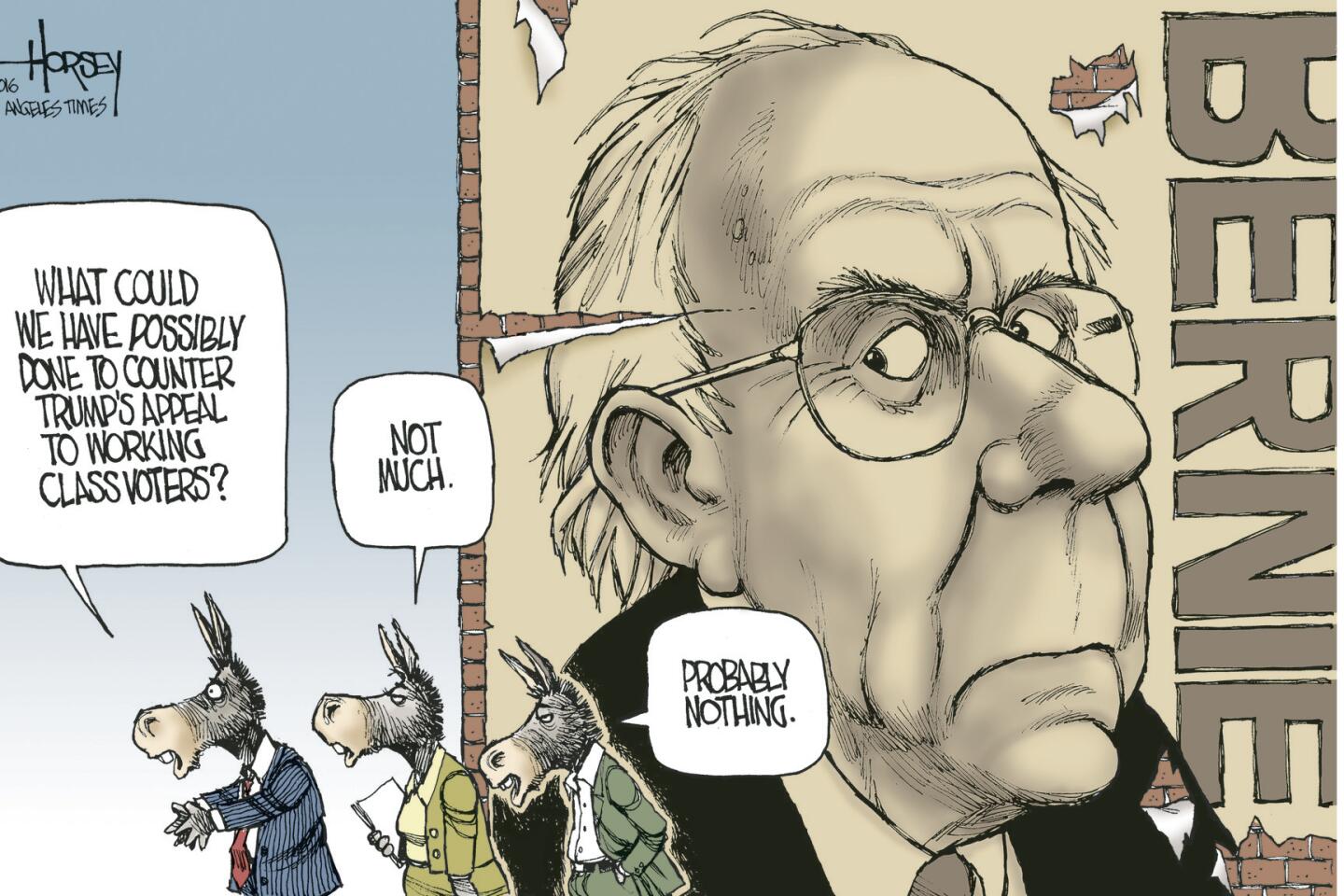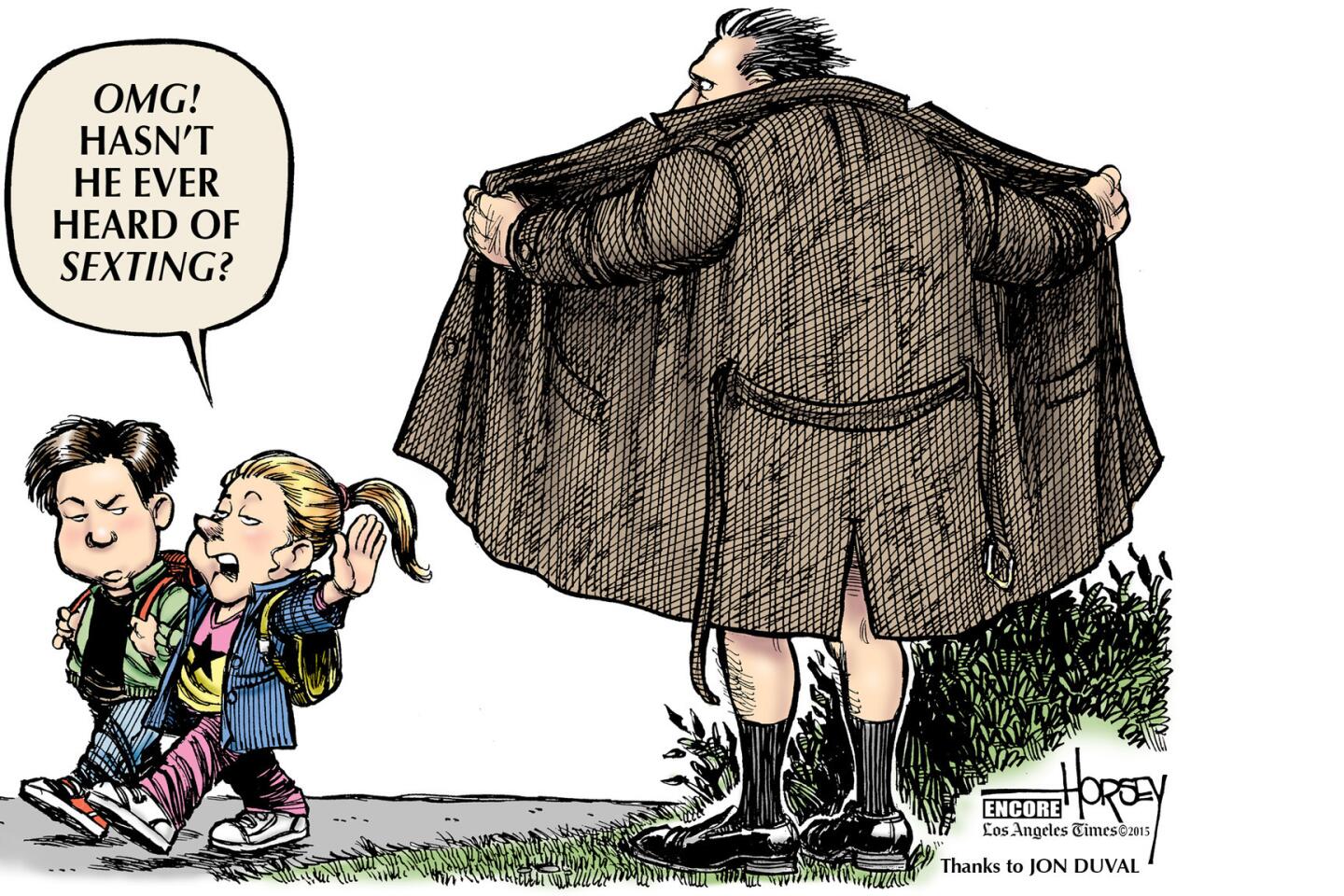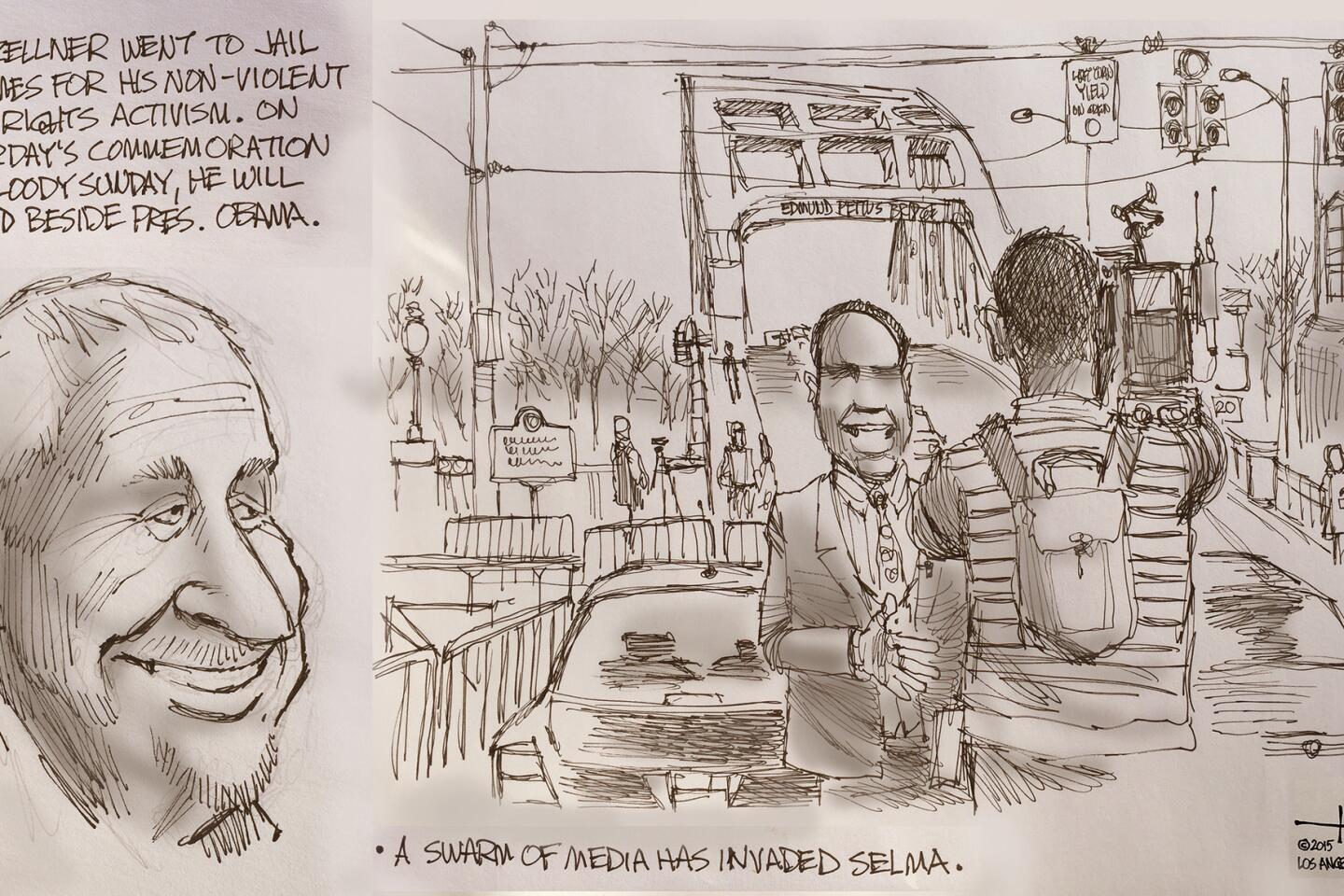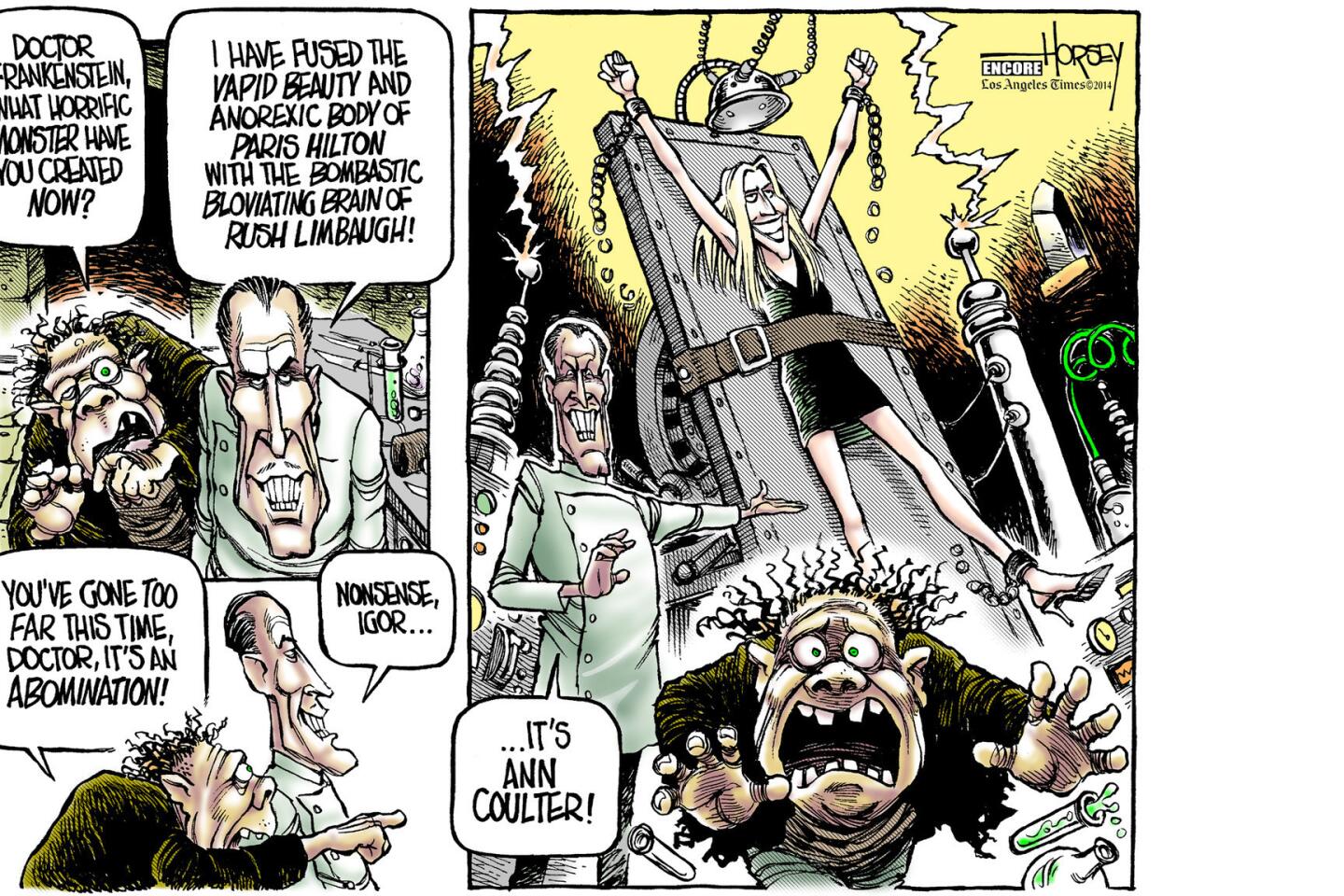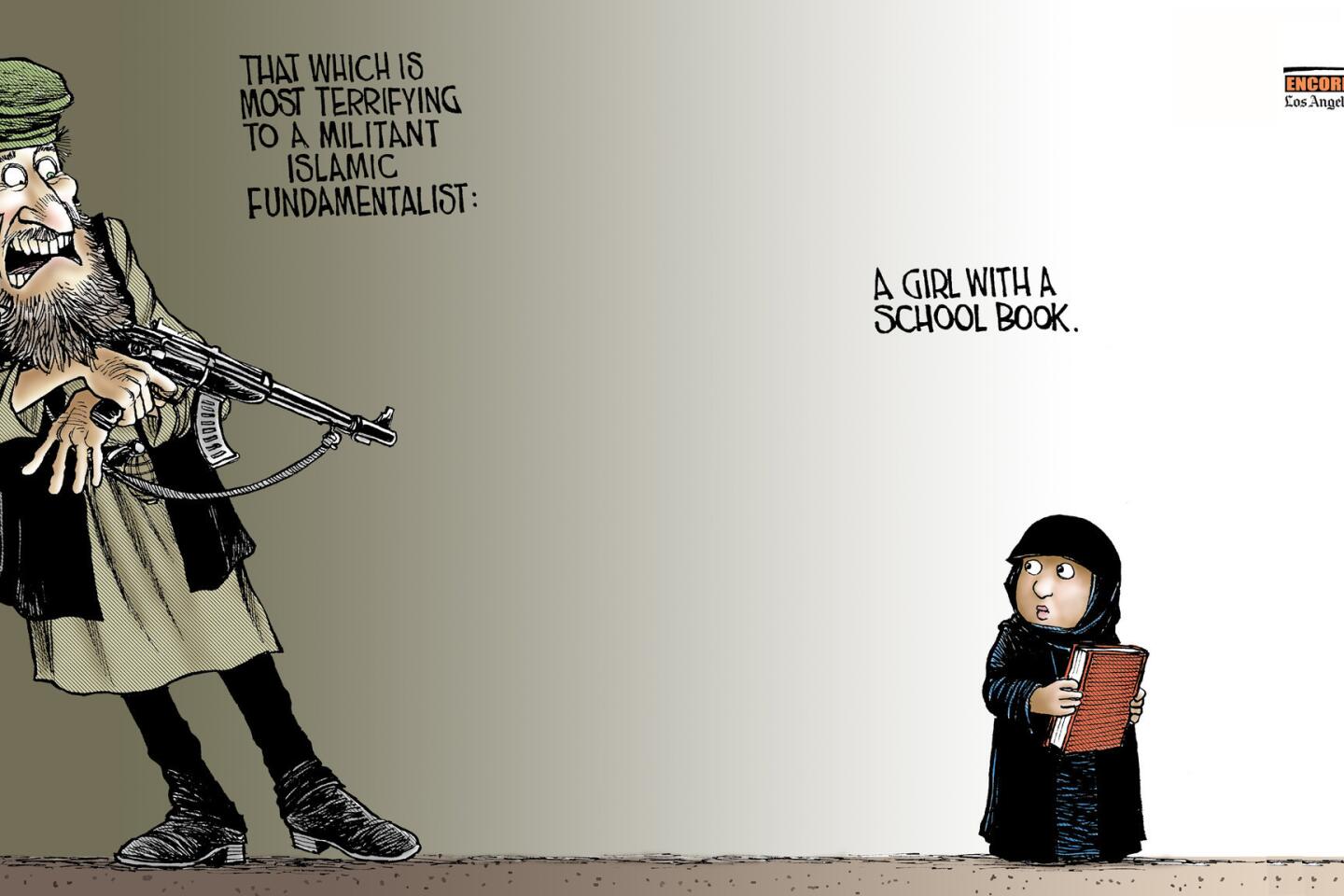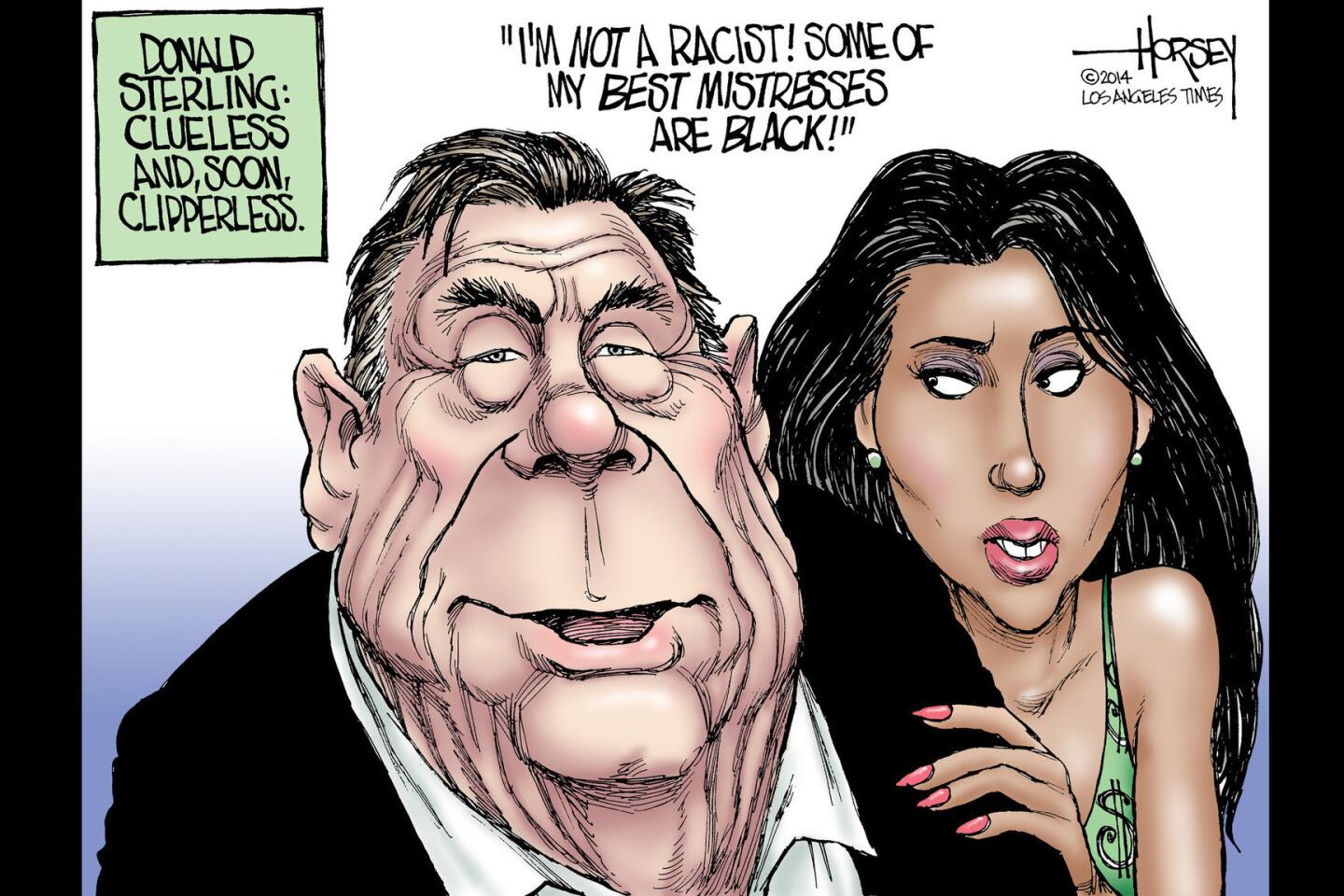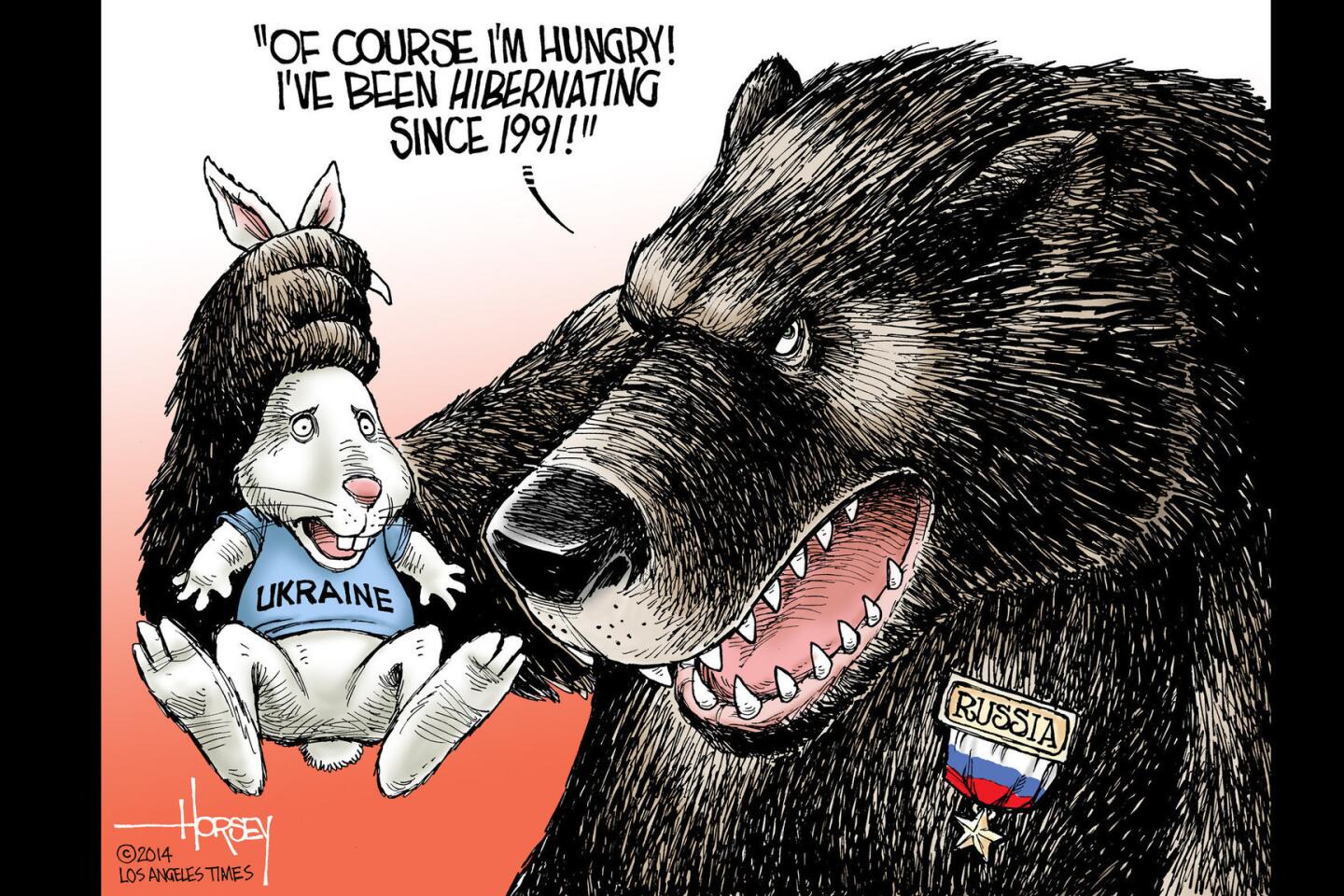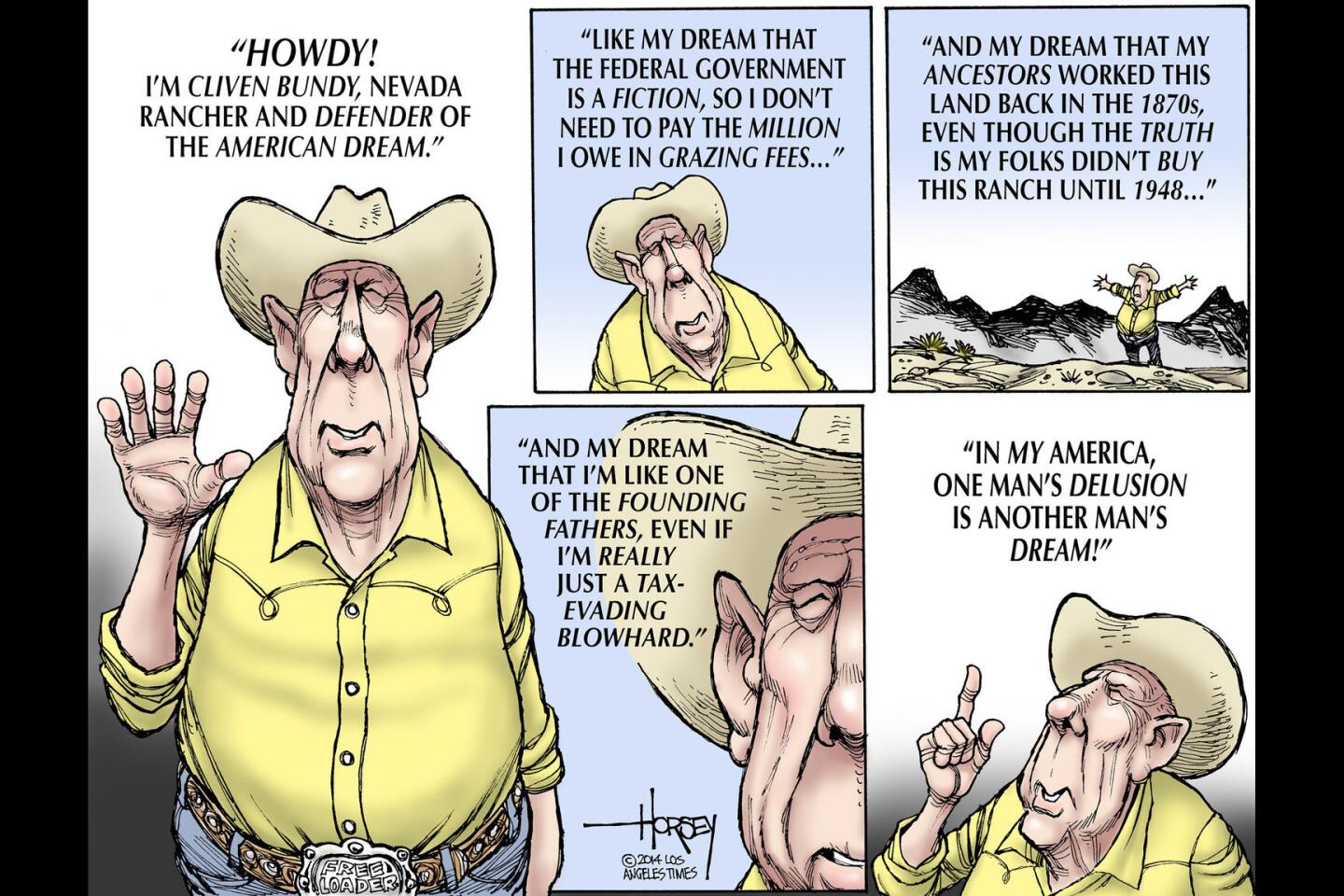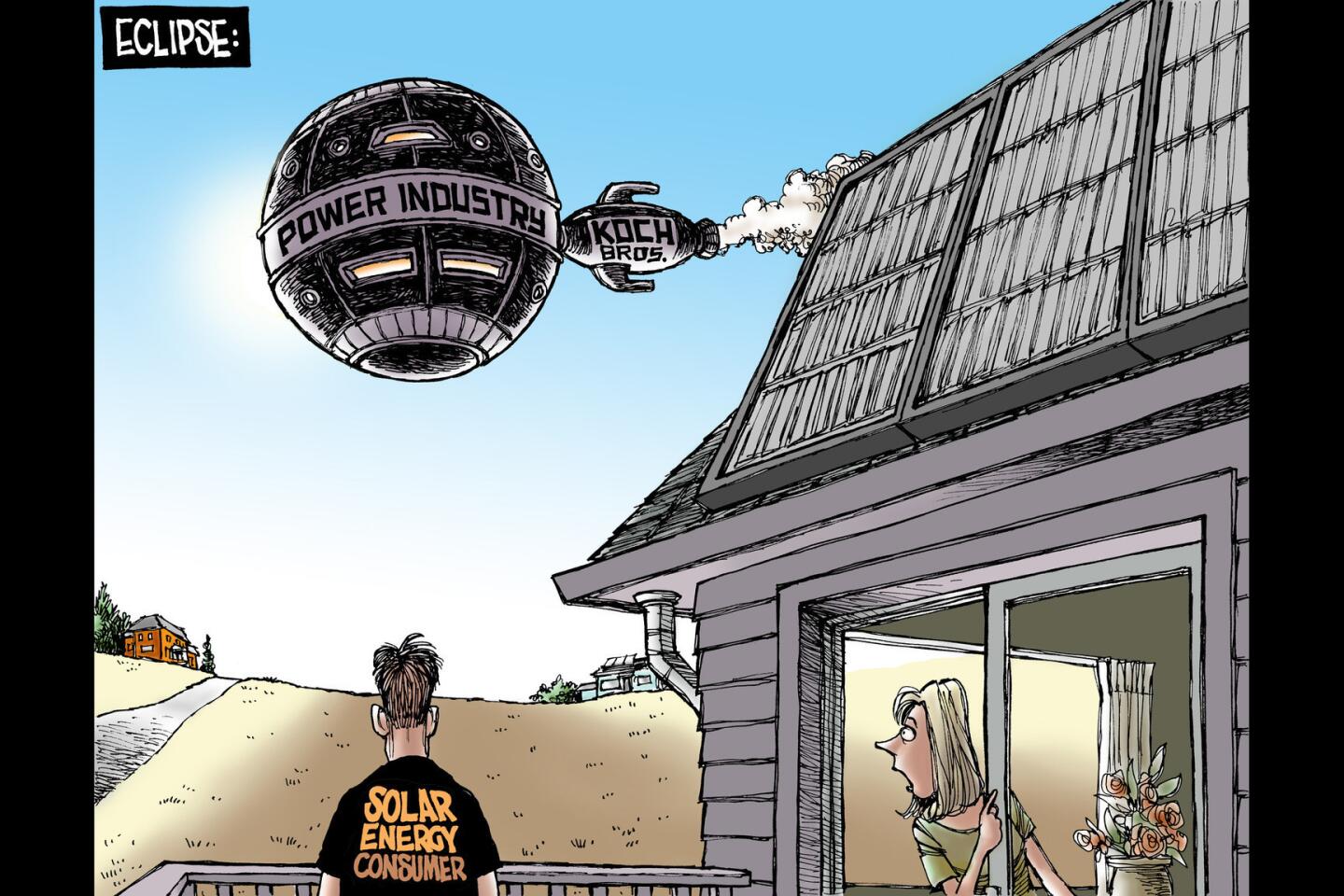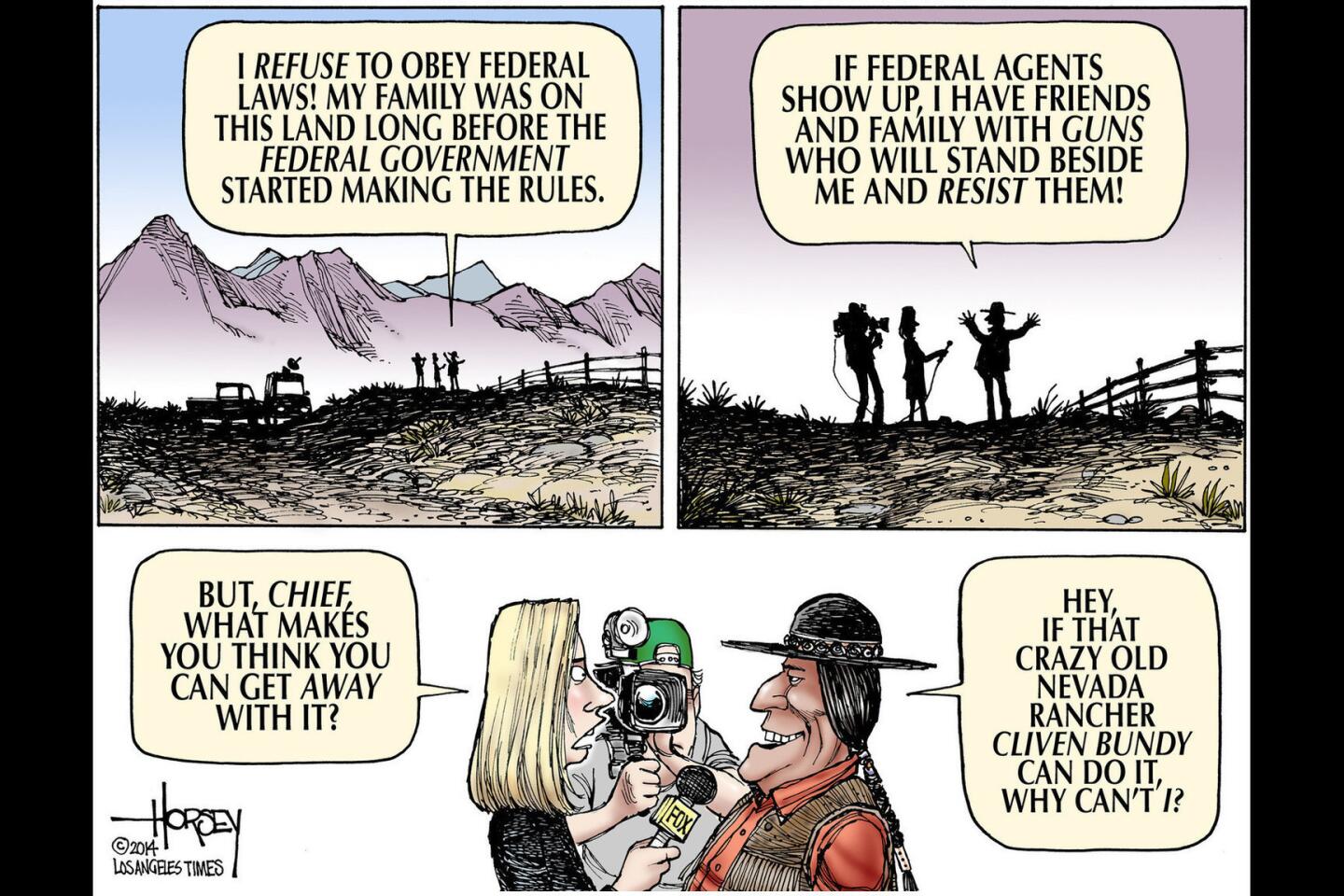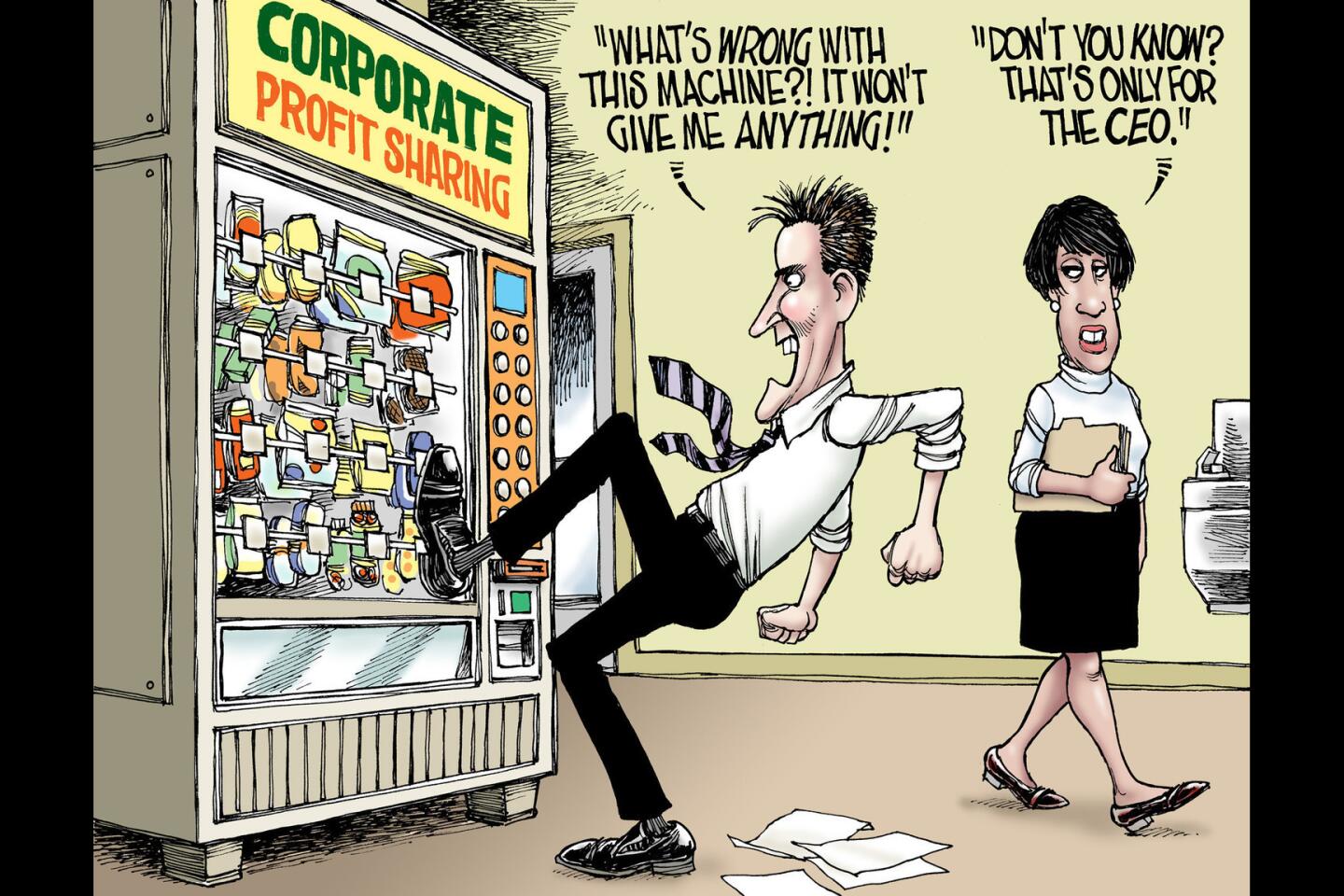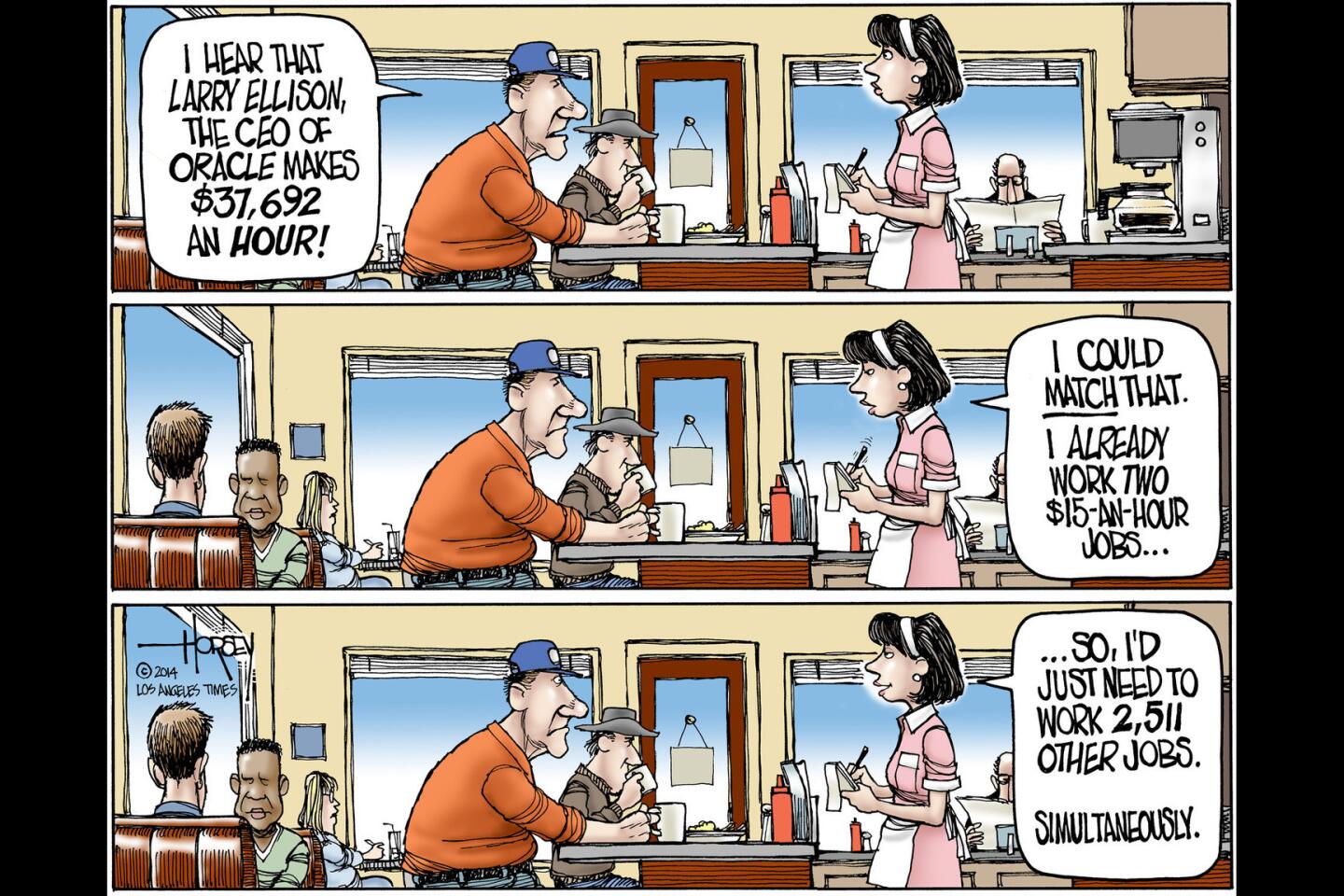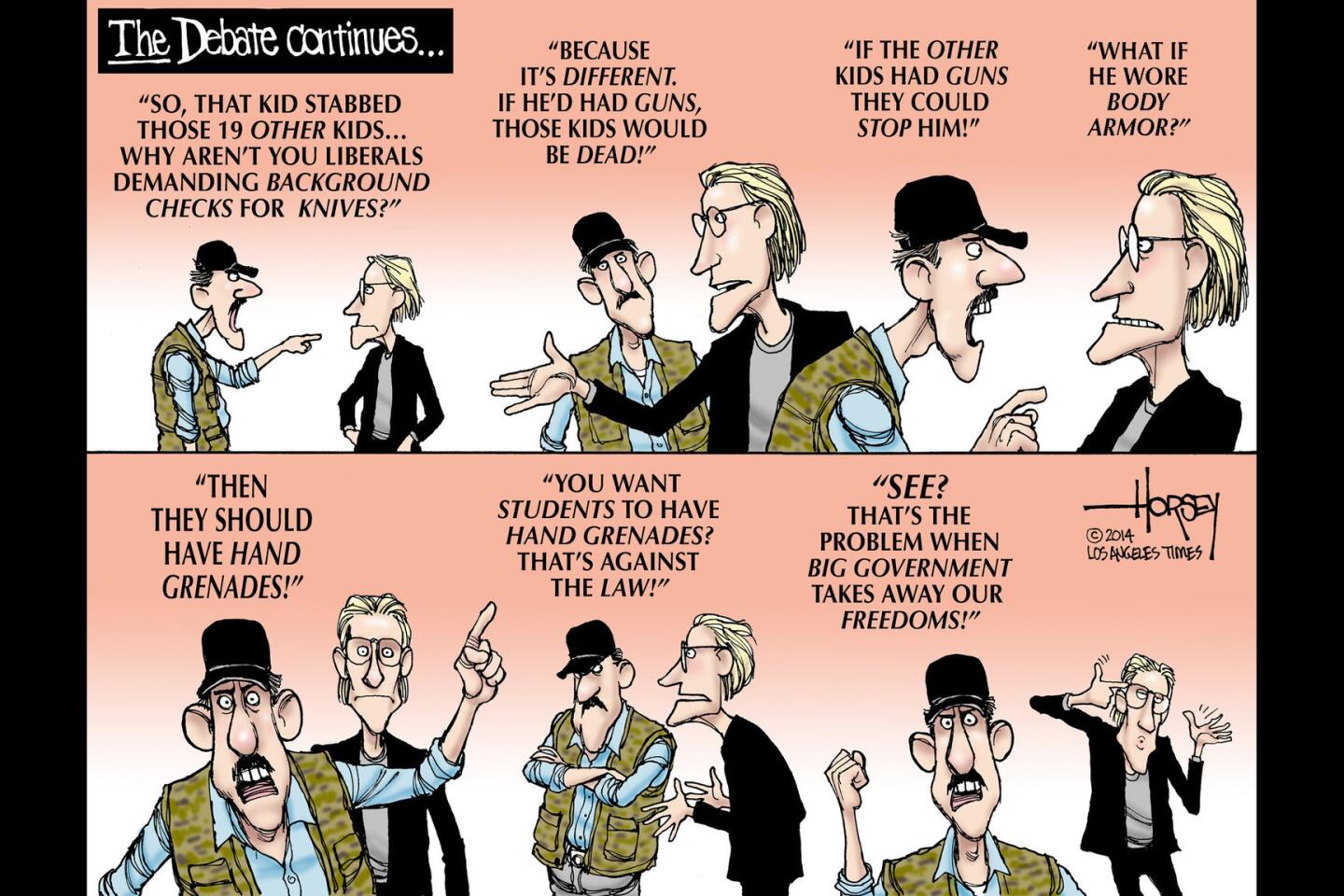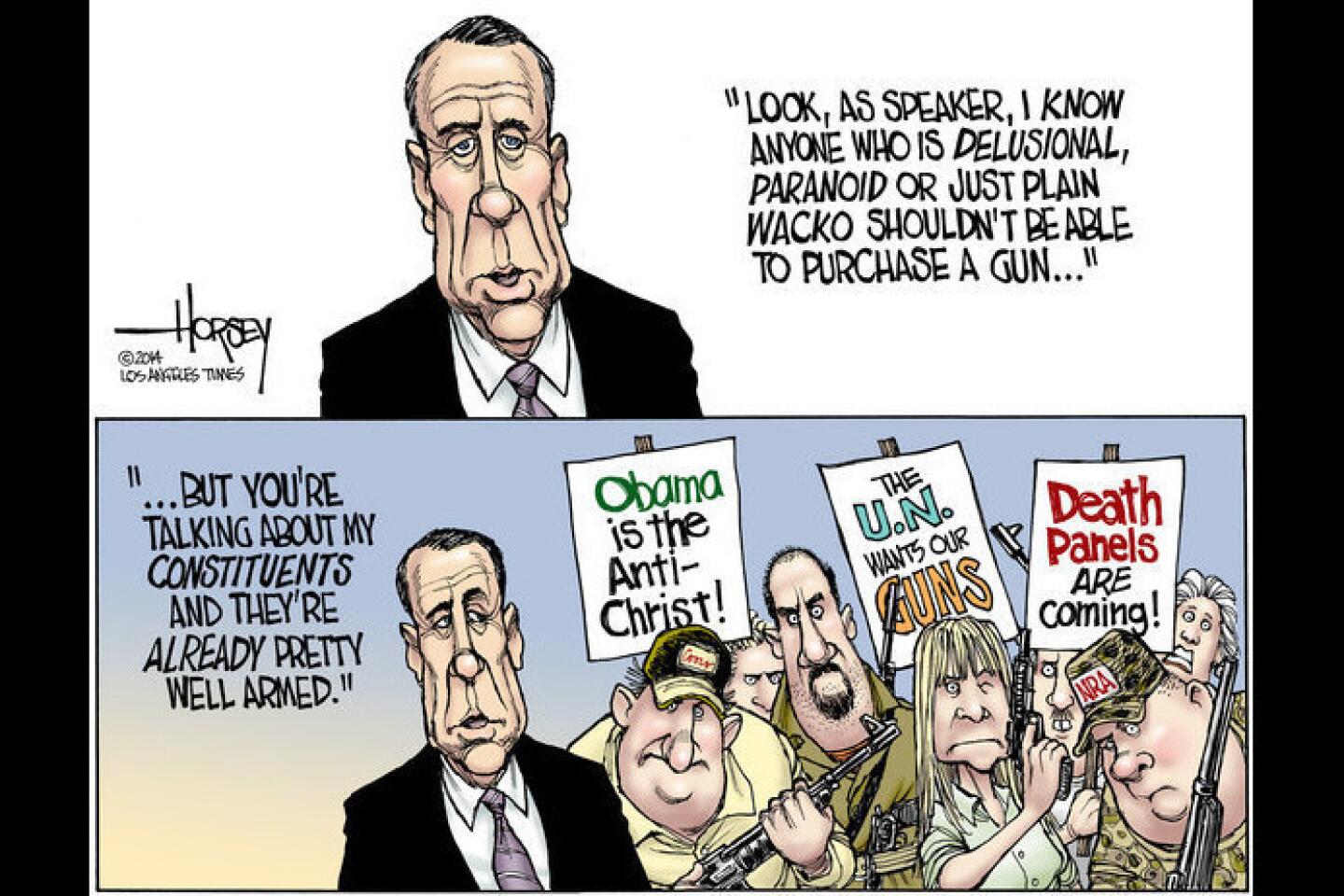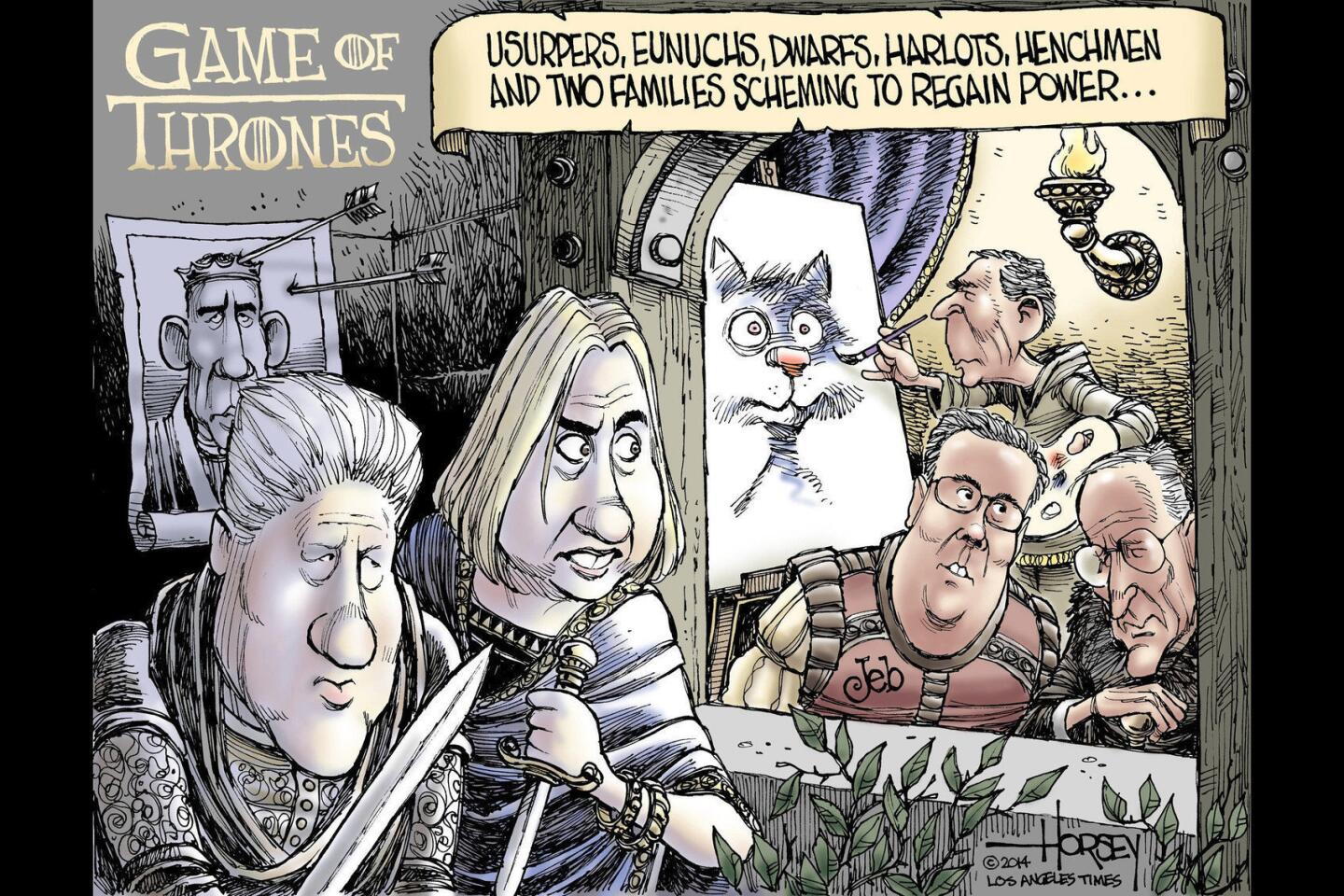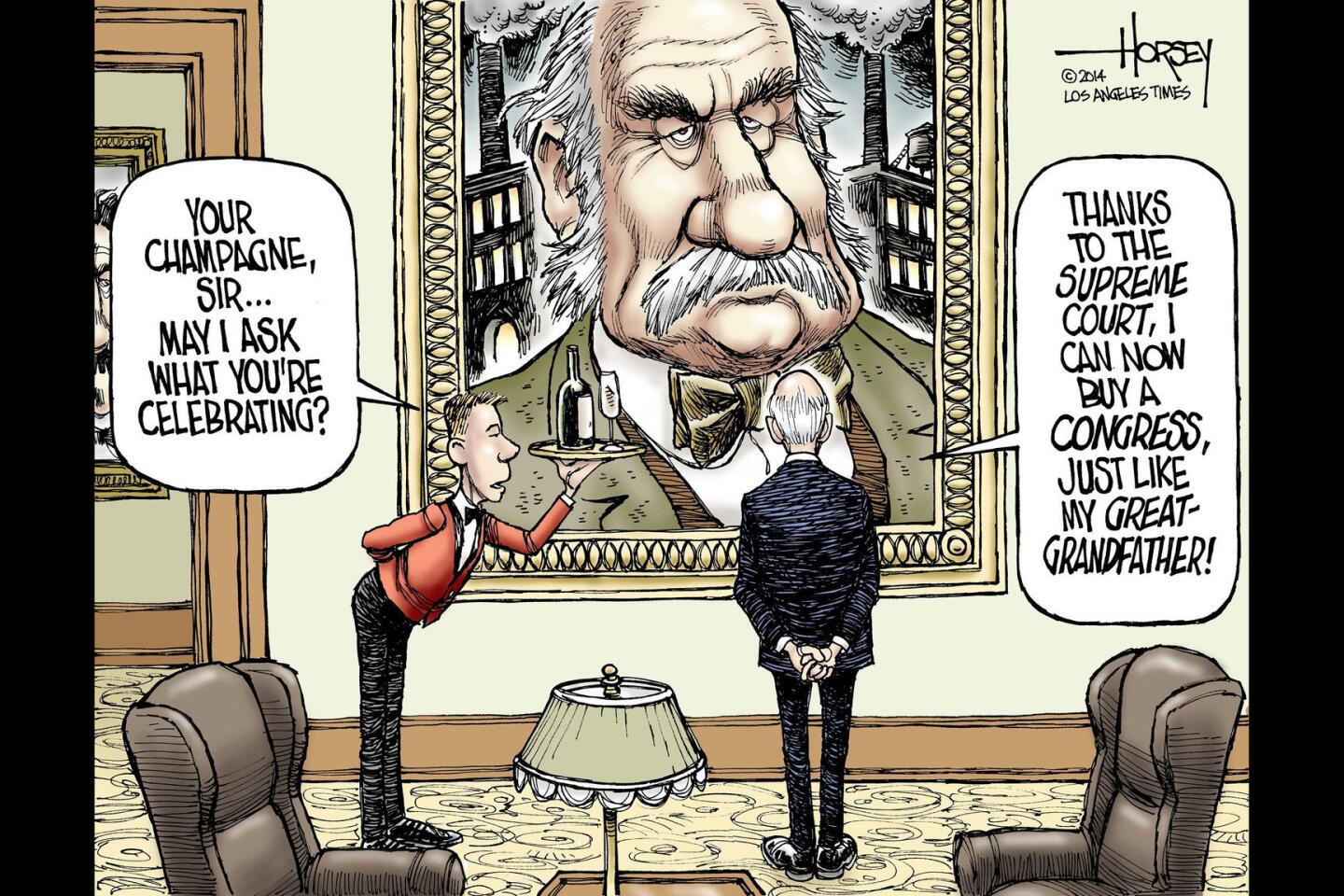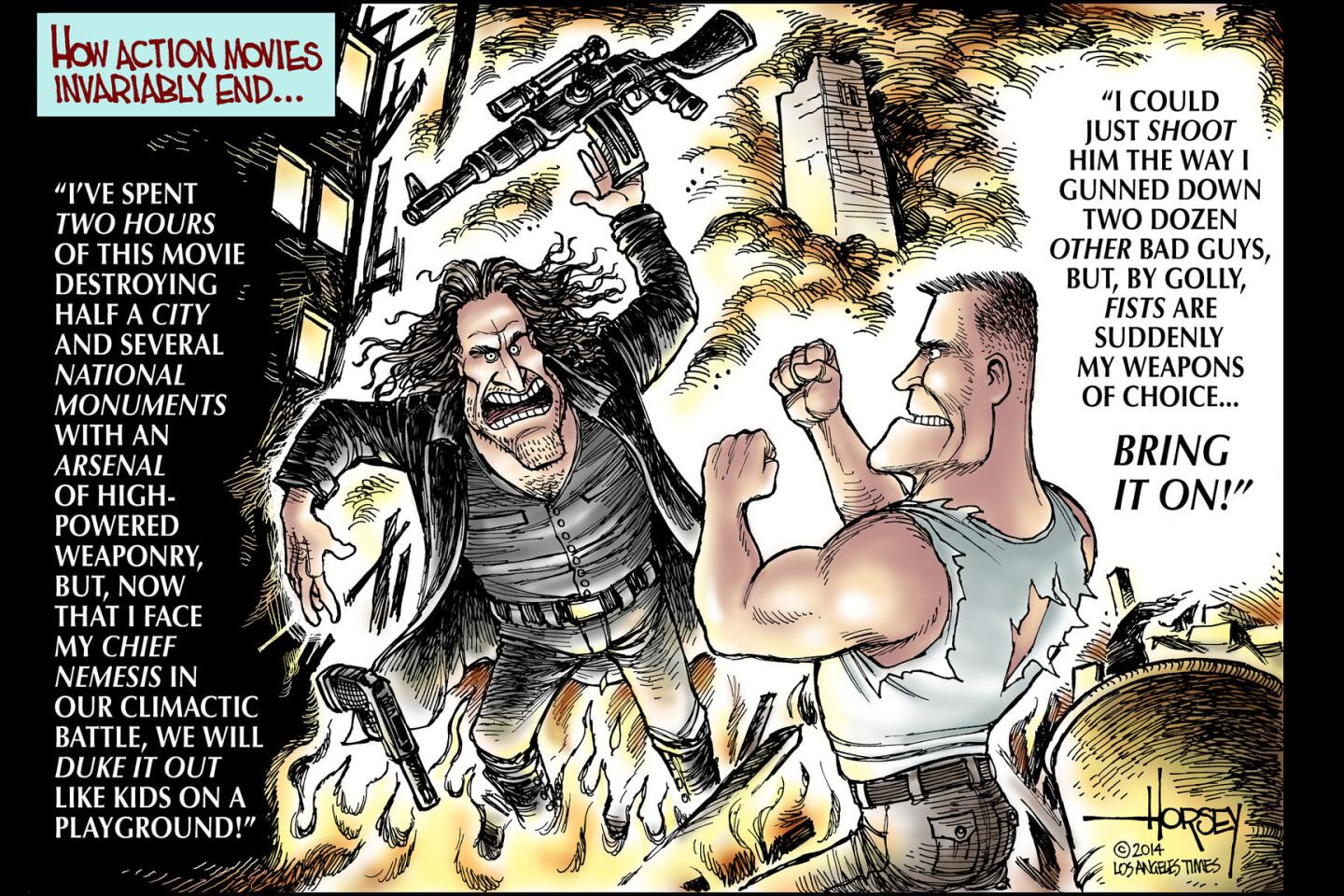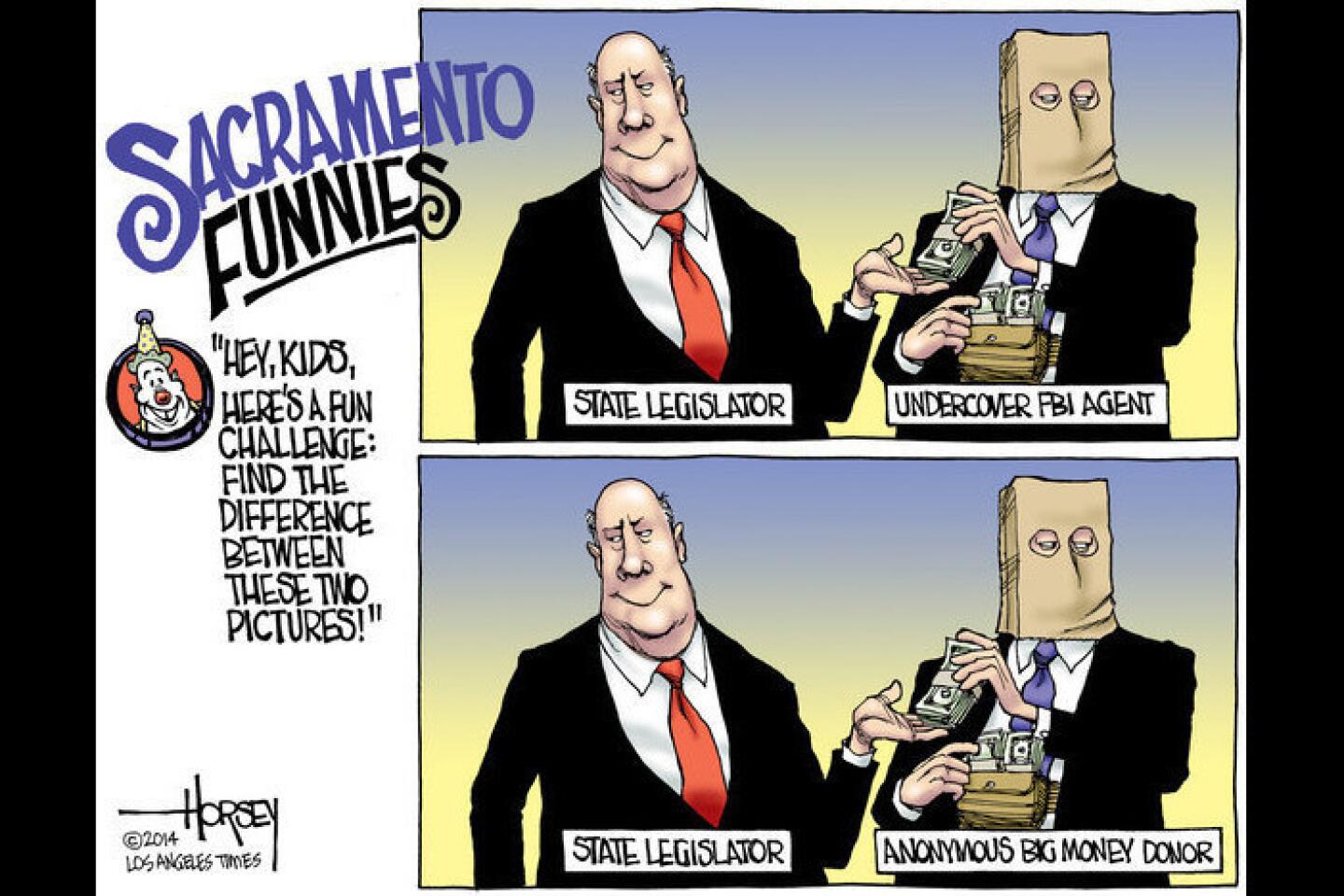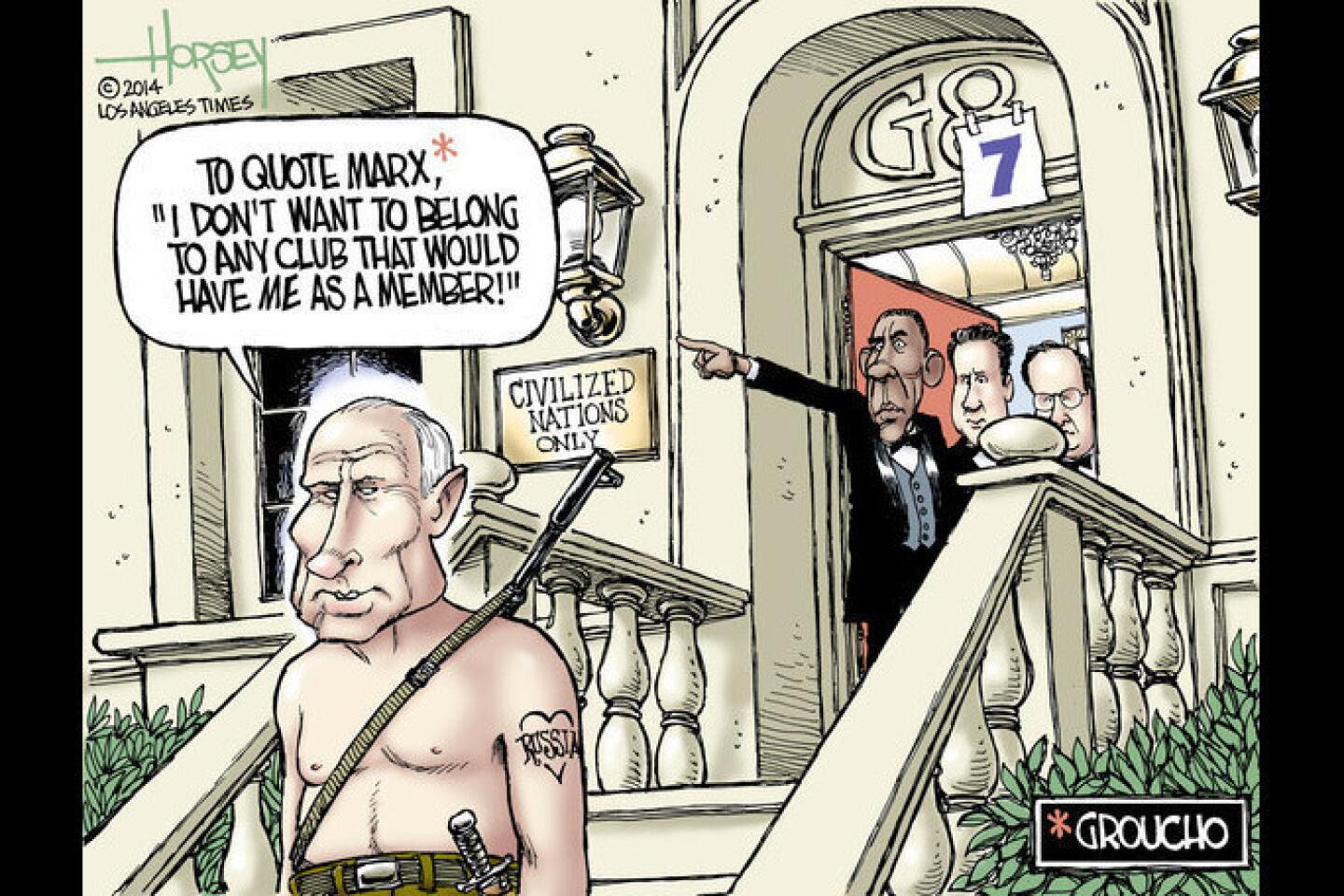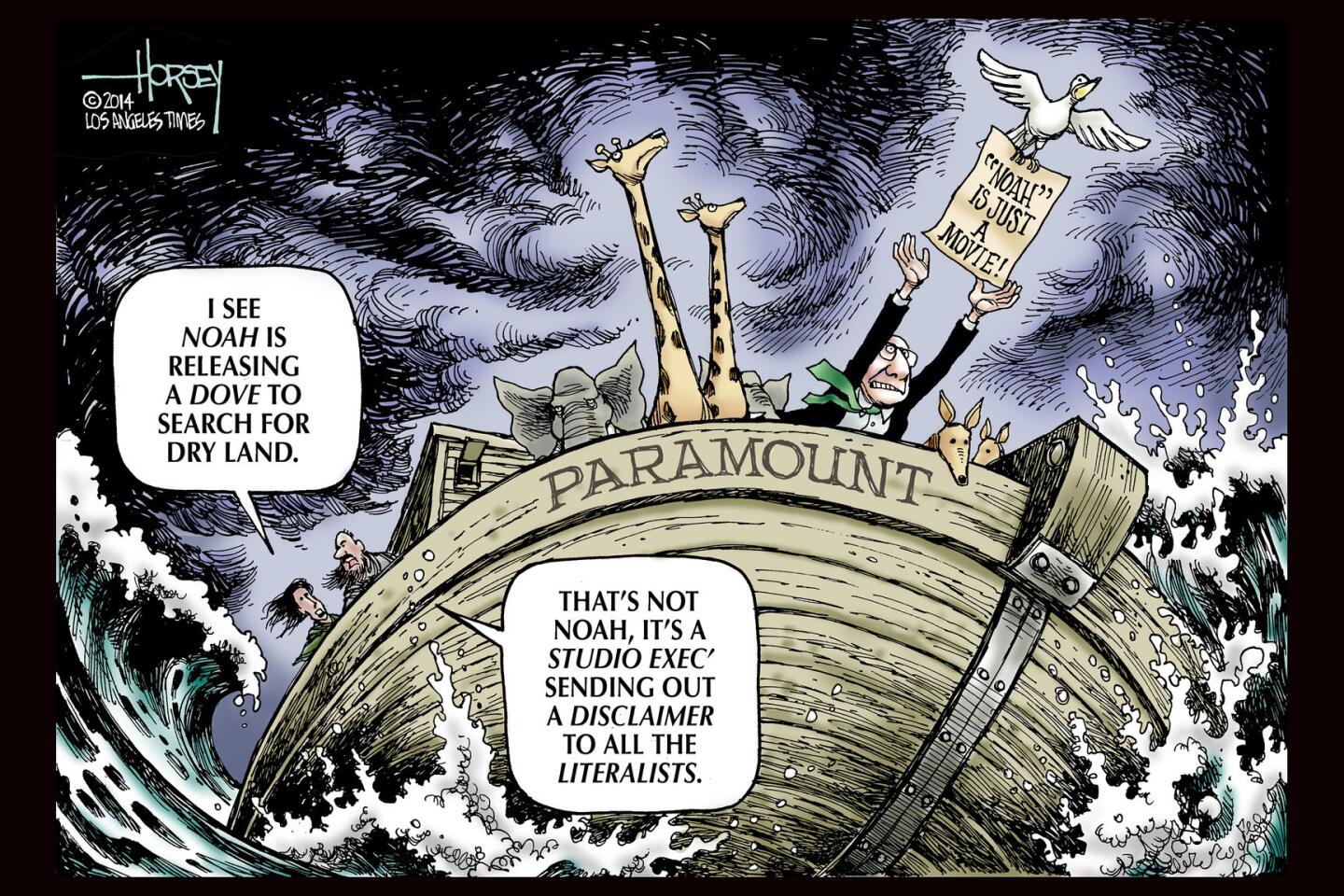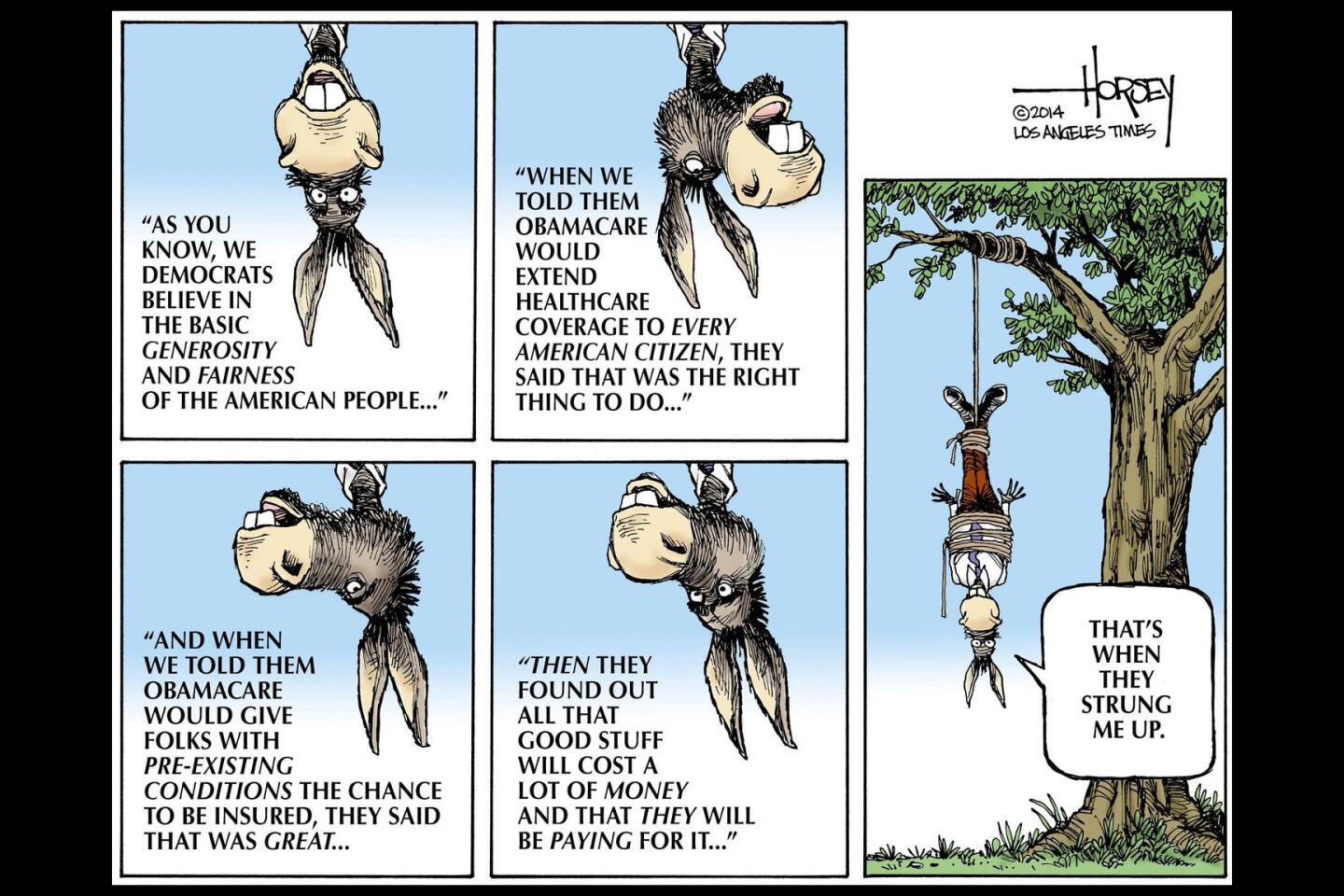National Democratic Party fails to be bold in Montana’s special election
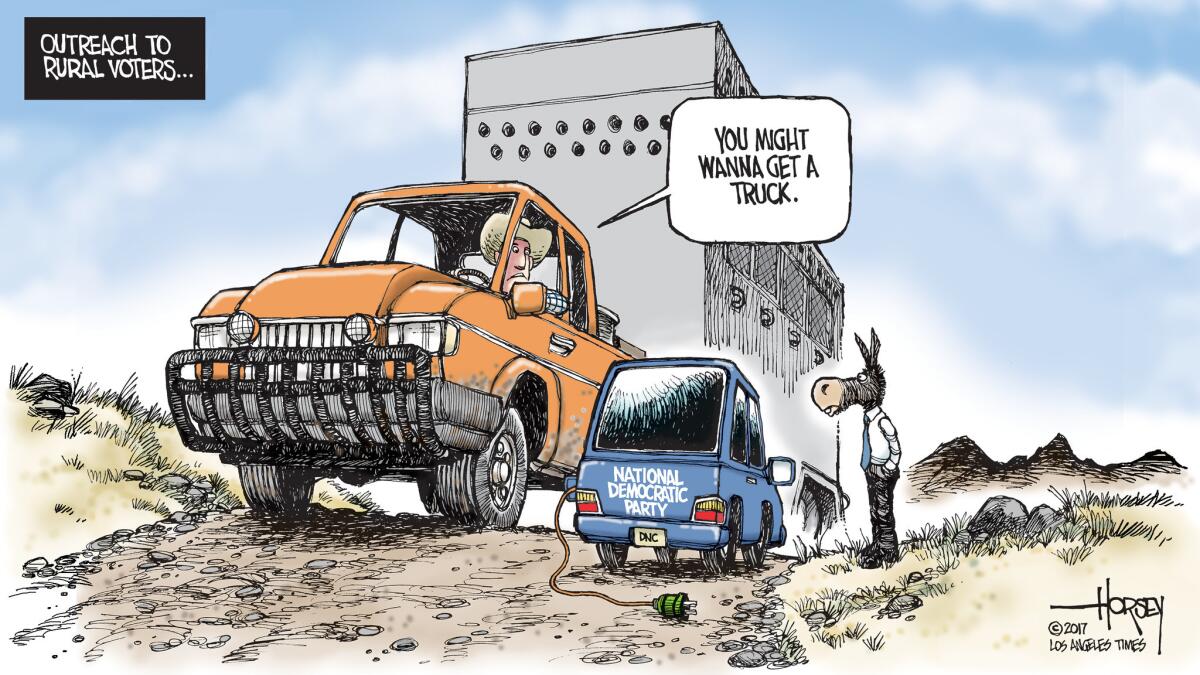
- Share via
After several rounds of pool and a few beers and margaritas at the lone bar in tiny Whitewater, Mont. (official population: 64), my riding buddies and I climbed into a couple of trucks and headed back to our horse camp amid the pastures and rugged coulees on a ranch two miles from the Saskatchewan border. Polls had just closed in Montana and my friend Paul turned on the radio to see if we could hear the result of the state’s hotly contested congressional election.
What we got was The Five on Fox News, a quintet of loudmouths talking over each other. In my normal daily life as a constant consumer of current events I have become accustomed to the shouting matches that dominate so much of what passes for “news” in the broadcast media. However, after a week of escape from cellphones, email and TV, the absurdity of the loud and lame commentary on The Five was jarring. It was a reminder that, among the many explanations for why American politics have become so polarized, the hype and harsh rhetoric on talk radio and cable television place high on the list of culprits.
The topic of discussion on The Five was Republican congressional candidate Greg Gianforte’s assault on a reporter who was trying to get a straight answer about the GOP healthcare bill. The radio debate was not illuminating in the least, but those of us listening in the truck did wonder if the violent incident would change the outcome of the election after a campaign in which Gianforte, a multimillionaire New Jersey transplant, had maintained a solid lead over his Democratic rival, Rob Quist, a bluegrass musician, rancher and lifelong Montanan.
It turned out that manhandling a member of the news media did not have much impact on the vote. Gianforte won by a comfortable six-point margin, although that was far from the 20% advantage Montanans gave Donald Trump over Hillary Clinton in November. According to an analysis of returns in the Missoulian newspaper, the assault spiked Quist’s numbers in Democratic strongholds like Missoula and Bozeman, but Gianforte got an election-day boost in rural counties where Trump is popular and where freedom of the press appears to be less appreciated. The numbers suggested that people’s reaction to Gianforte’s unprovoked attack were heavily influenced by partisanship, not by the facts of the situation.
Except for the congressional race, my politically diverse compatriots at the ranch avoided talking politics. Judging by how we got along, I’d say we proved that Americans with competing viewpoints do not need to perceive each other as enemies from two irreconcilable camps. We easily found common ground.
Our days were spent herding cattle in preparation for the weekend branding. We passed evenings by a campfire swapping jokes and describing our various narrow escapes with disaster while riding the treacherous terrain. One night, a young man from Georgia who had spent a few months working on the ranch came to the campfire to play guitar and sing for us. He brought along his dad — a man in his early 50s named Eric — who had just arrived to bring his son back home.
Eric was a really nice guy. He told me he was employed as a lineman for AT&T and, though he had not looked forward to a single day of work during his many years on the job, it had paid the bills. I told him he had obviously done a good job as a father and he took that as a high compliment.
I imagine that Eric voted for Trump (although, for all I really know, he could have been a Bernie Sanders voter). He is certainly part of the demographic of non-college-educated, blue-collar white men who gave Trump the edge over Clinton; the kind of solid, straightforward working people who, I am convinced by good evidence, will be betrayed by Trump and a Republican Party that consistently favors rich people and big corporations while stirring up false fears among middle-class wage earners.
The party of Franklin Delano Roosevelt and John F. Kennedy has got to find good candidates who can reach out to working people. Democrats in Montana thought Quist could make that happen in the special congressional election, but the national party stayed out of the battle, conceding the race to Gianforte, who received millions of dollars from the national GOP and various big business PACs. Despite recent pledges to fight for votes in every ZIP code in the nation, Democratic leaders apparently reasoned that, since Montanans had not elected a Democratic congressman in two decades, it was not going to happen in 2017. That was a timid calculation. Yes, it was an uphill fight, but Montana does have a Democratic senator, Jon Tester, and a Democratic governor, Steve Bullock, so the task was far from impossible.
If the Democrats really want to claw their way back into majorities in Congress and state legislatures, they need more than the support of people in cities and swing-vote suburbs. They have to go into places where Fox News and Rush Limbaugh are the primary information source and somehow break through the constant din of right-wing commentary. They need to make the case that Democrats really understand Americans who work with cattle and crops and those who do the tough jobs that barely pay the bills.
Follow me at @davidhorsey on Twitter
More to Read
A cure for the common opinion
Get thought-provoking perspectives with our weekly newsletter.
You may occasionally receive promotional content from the Los Angeles Times.
